|
|
All Countries Ships; First, Last, Oldest
|
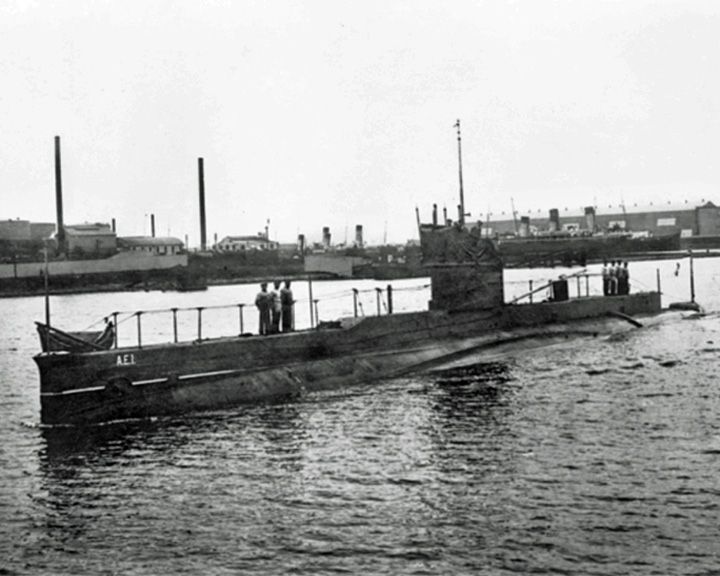 AE1, HMAS — Australia E-class submarine, British built The first Royal Australian Navy submarine and the first allied vessel lost in World War I with a crew of 35. She was assigned to the capture of the German Pacific colony of New Guinea at the outbreak of the World War I. LAUNCHED: 1913, May 18 → FATE: Lost at sea September 14, 1914; her wreckage located at a depth of 300 meters off the Duke of York Islands. |
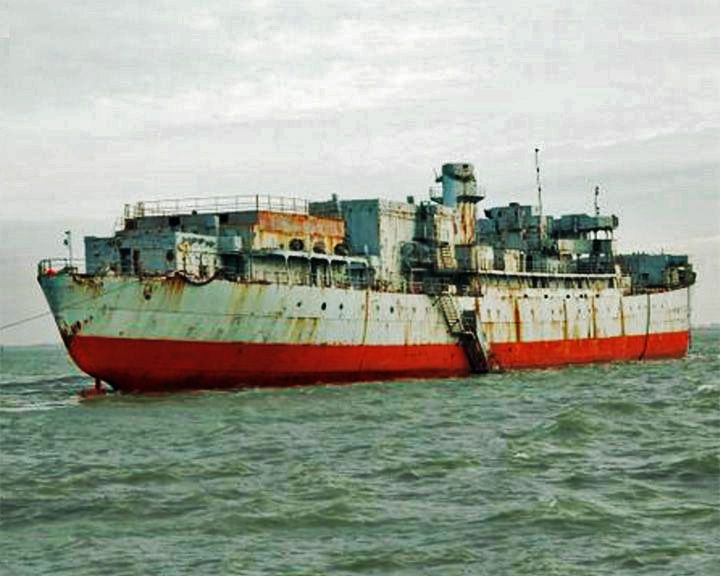 (Another (Another Albert M. Boe — American liberty ship Last Liberty ship built. Though currently landlocked, she is still in use as the home of Trident Seafoods. The ship was withdrawn from the reserve fleet on 19 August 1964 and converted for use as the fish cannery ship Star of Kodiak. LAUNCHED: 1945, September 18 → FATE: Converted to a fish cannery ship in 1964. |
 Alligator — American submarine First U.S. Navy submarine. The first American submarine, called Turtle (1776), never served in the U.S. Navy. The first commissioned U.S. submarine was the USS Holland in 1862. LAUNCHED: 1862, May 18 → FATE: Sank in bad weather off Cape Hatteras April 2, 1863. |
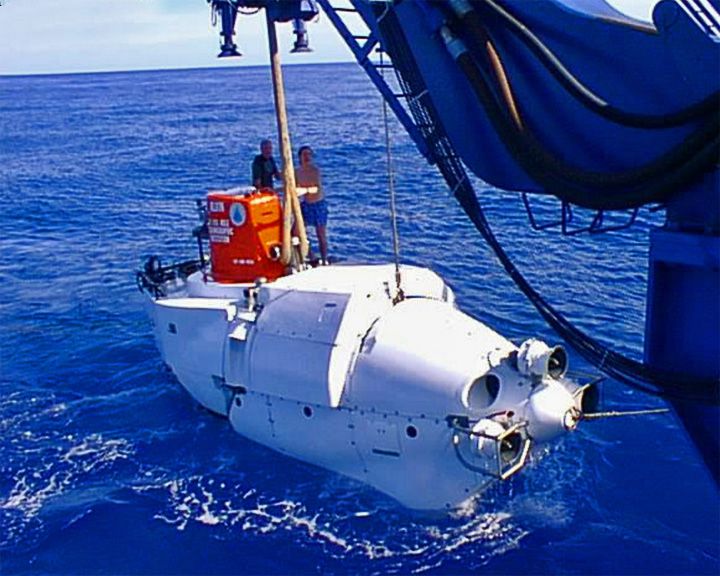 (Another (Another Alvin, DSV — American research vessel; submersible First Deep Submergence Vehicle (DSV) able to dive to 4,500 meters or 14,800 feet. She was lost October of 1968 when she accidentally sank in 1500 meters of water, but was recovered in August of 1969 and refurbished. LAUNCHED: 1964, June 18 → FATE: Still in service. |
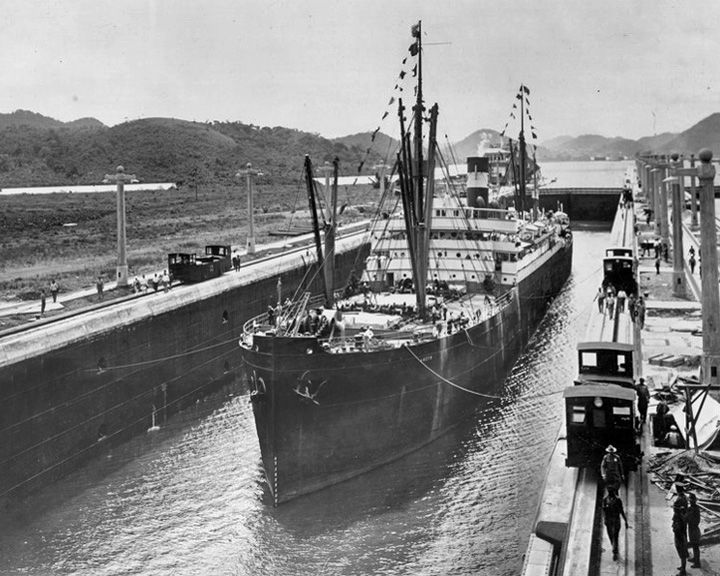 Ancon, SS — American steamship First ship to officially transit the Panama Canal on August, 15 1914. (Sister ship Cristobal made the first unofficial transit on August 3, 1914). She was acquired by the US Navy from the US Army for troop transport just after the end of World War I. LAUNCHED: 1902 → FATE: As the USS Ancon (ID-1467), she was decommissioned on July 25, 1919. |
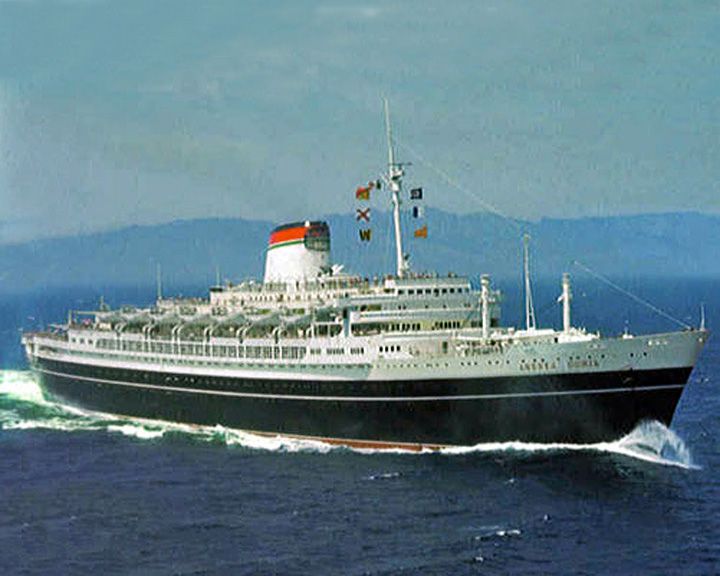 (Another (Another Andrea Doria, SS — Italian ocean liner Collided with the MS Stockholm in the Atlantic and sank; 52 people died. Of all Italy's ships at the time, she was the largest, fastest and supposedly safest. She was the last major transatlantic passenger ship to sink. LAUNCHED: 1953, January 18 → FATE: Sank July 26, 1956. |
 Archimedes, SS — British steamship First ship propelled by a screw drive. The advantages over side paddlewheel propulsion persuaded the Royal Navy to build the steam sloop-of-war HMS Rattler, the first British warship to adopt a screw propeller. LAUNCHED: 1839, October 18 → FATE: Sank in the Meuse River during a storm on March 1, 1864. |


|
Page 2
|
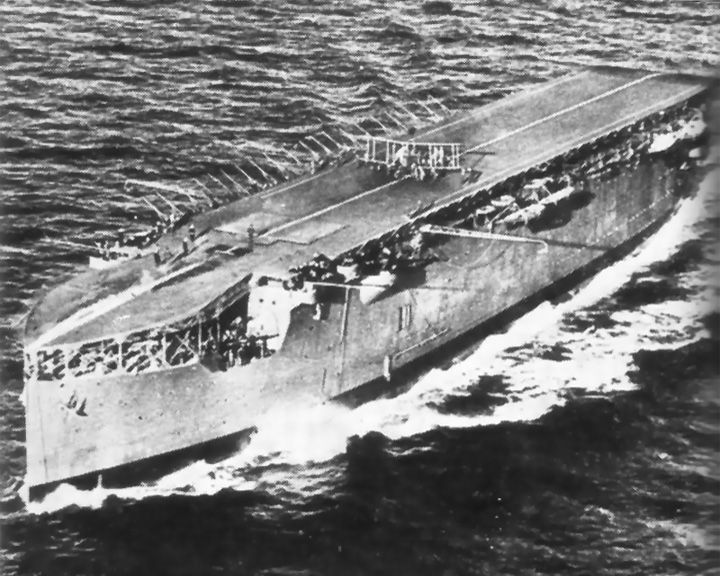 Argus, HMS — British aircraft carrier First Aircraft carrier to have a full flight deck and a lift. She was built from the incomplete Italian ocean liner Conte Rosso and served extensively in both world wars. LAUNCHED: 1917, December 18 → FATE: Scrapped December 1946. |
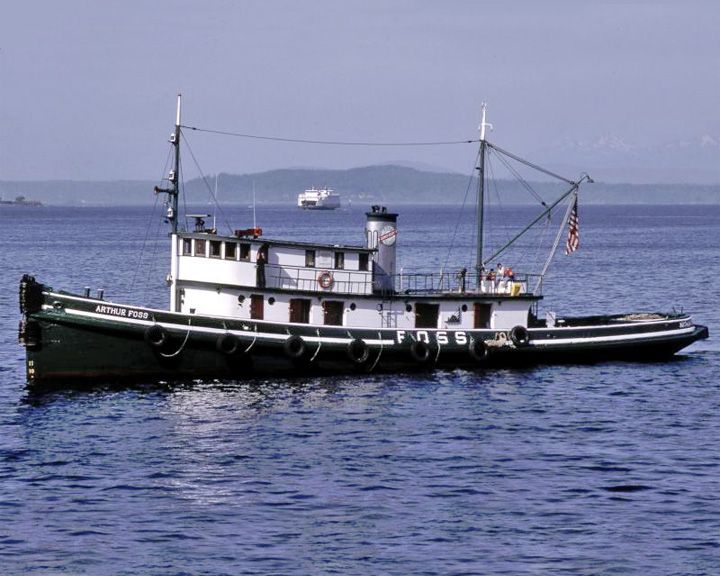 (Another (Another Arthur Foss — American tugboat One of the oldest wooden-hulled tugboats afloat in the United States. She was cast by MGM to play in the 1933 movie Tugboat Annie. LAUNCHED: 1887 → FATE: Renovated and on display at Seattle's South Lake Union Park. |
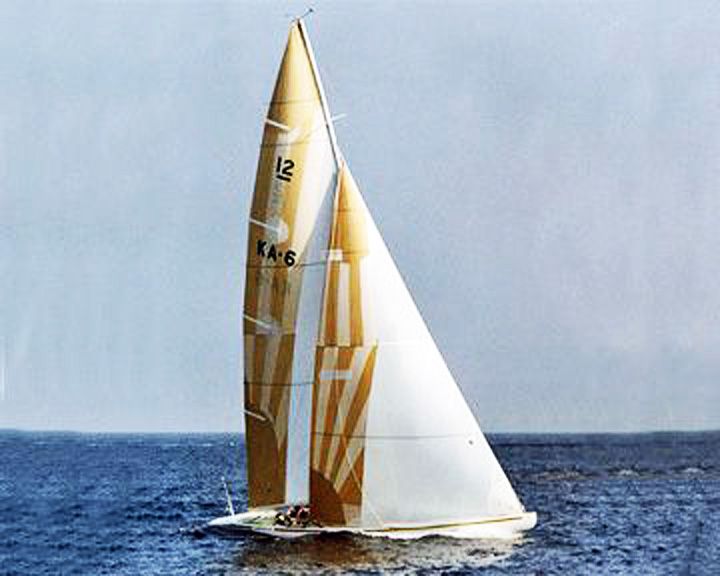 Australia II — Australian racing yacht First winning challenge to the New York Yacht Club's 132 year hold on the America's Cup during the 1983 America's Cup Race. The legality of her winged keel, which gave her advantage in maneuverability and heeling moment, was challenged by the NYYC but upheld. LAUNCHED: 1982 → FATE: On display at the Western Australian Maritime Museum in Fremantle. |
 Belfast, HMS — British town-class cruiser One of only three surviving bombardment ships which supported the D-Day Normandy Landings in 1944 of World War II, firing probably the first or second salvo. She spent 33 days in support of the D-Day landings and fired over 4,000 6-inch and 1,000 4-inch shells. LAUNCHED: 1938, March 18 → FATE: After much preservation work, she is on exhibit, located on the River Thames next to Tower Bridge at the Port of London. |
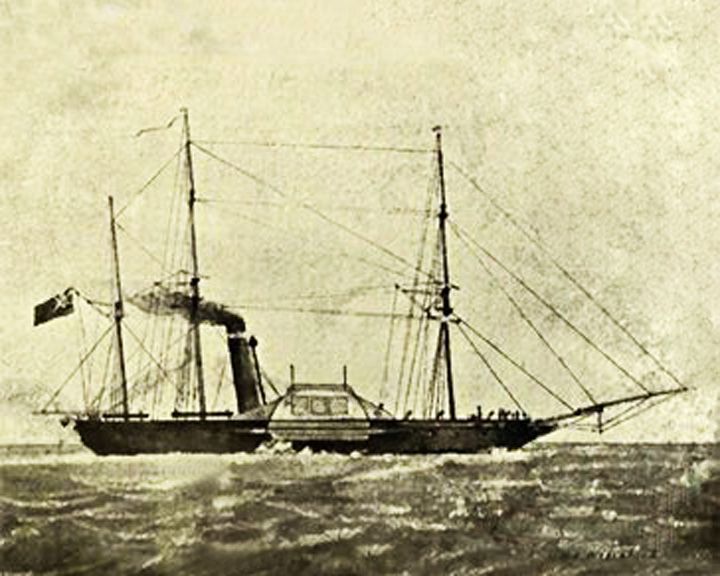 (Another (Another Birkenhead, HMS — British frigate, steamer The protocol "women and children first" originated on this sinking ship. Only 193 of the 643 people on board survived. Over the years, numerous attempts have been made to salvage the gold thought on board. LAUNCHED: 1845, December 18 → FATE: Struck a hidden reef and sank February 26, 1852. |
 Birmingham, USS — American scout cruiser, Chester-class The first airplane takeoff from a ship in history in 1910. During World War I, she patrolled along the northeast U.S. coast until 14 June 1917 when she sailed from New York as part of the escort for the first US troop convoy to France. LAUNCHED: 1907, May 29 → FATE: Sold for scrap, 13 May 1930. |
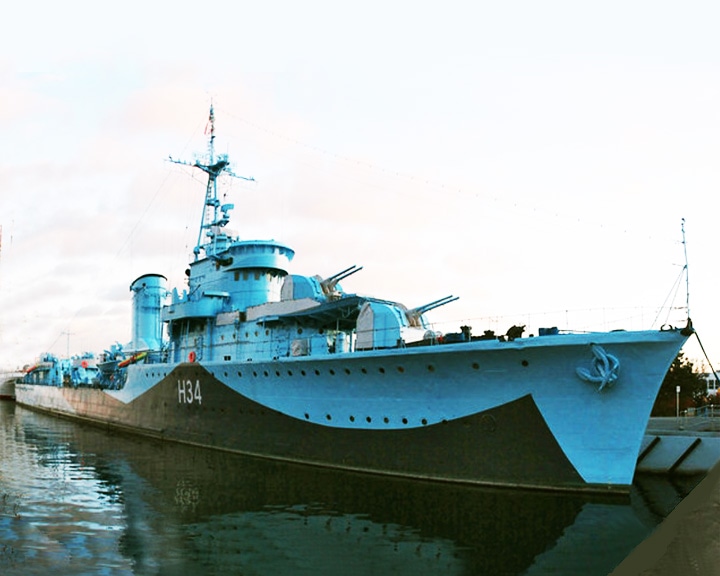 Blyshawica, ORP — Polish destroyer, Grom-class She is the only Polish Navy ship to have been decorated with the Virtuti Militari, Poland's highest military order for gallantry. She is the oldest preserved destroyer in the world. LAUNCHED: 1937, November 25 → FATE: On display as a museum ship in Gdynia, Poland. |
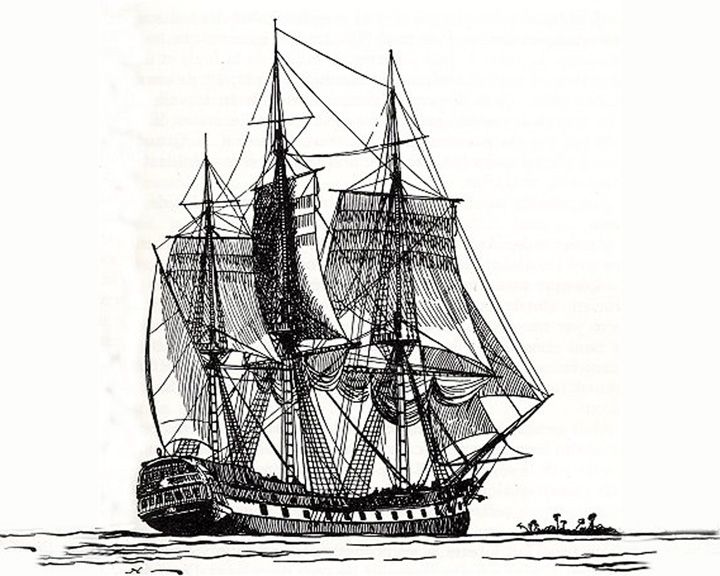 (Another (Another Boudeuse — French frigate First woman to circumnavigate the globe on board, Jeanne Baret, disguised as man. She is also famous as the exploration ship of Louis Antoine de Bougainville, 1766-1769. ("Another IMAGE" is the commemorative stamp issued.) LAUNCHED: 1766, March 18 → FATE: Broken up for firewood at Malta in early 1800. |
|
Page 3
|
 Cairo, USS — American ironclad gunboat First ship sunk by a naval mine and first vessel of the City class ironclads. Served with the Army's Western Gunboat Fleet during the American Civil War. Remnants of the gunboat are in a museum in the Vicksburg National Military Park. LAUNCHED: 1861 → FATE: Sunk by a naval mine in the Yazoo Riveron December 12, 1862. |
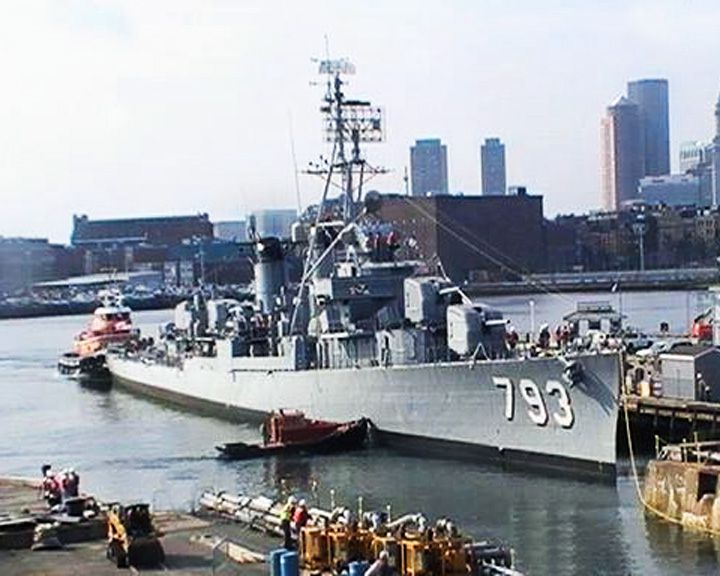 Cassin Young, USS — American destroyer in World War II One of only four surviving Fletcher-class destroyers still afloat. Named for Captain Cassin Young (1894-1942), who was killed in the Naval Battle of Guadalcanal. LAUNCHED: 1943, September 18 → FATE: Docked at the Boston Navy Yard as a museum ship as a museum ship. |
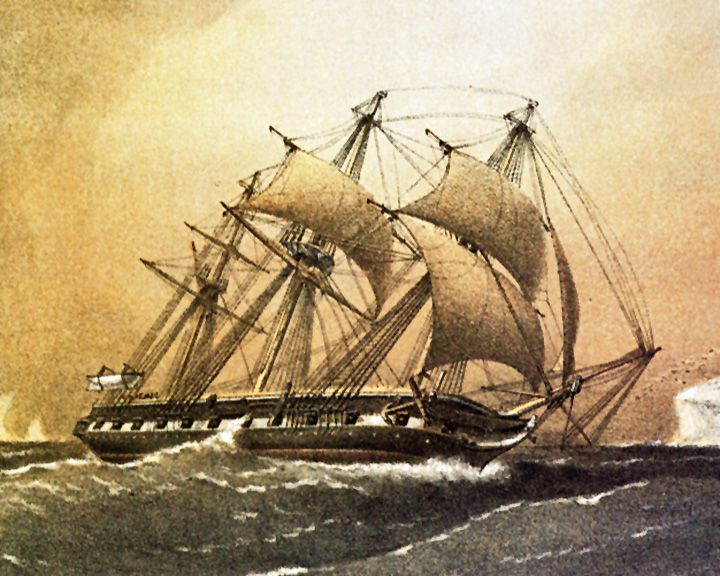 (Another (Another Challenger, HMS — British corvette; steam-assisted Undertook the first global marine research expedition. She was the flagship of the Australia Station between 1866 and 1870. LAUNCHED: 1858, February 18 → FATE: Broken up for her copper end in England in January, 1921. |
 (Another (Another Charles W. Morgan — American whaling ship World's oldest surviving merchant vessel; America's only surviving wooden whaleship. After a 5-year, multi-million dollar restoration, she set sail again, July, 2013. LAUNCHED: 1841 → FATE: On exhibit at the Mystic Seaport museum in Mystic, Connecticut. |
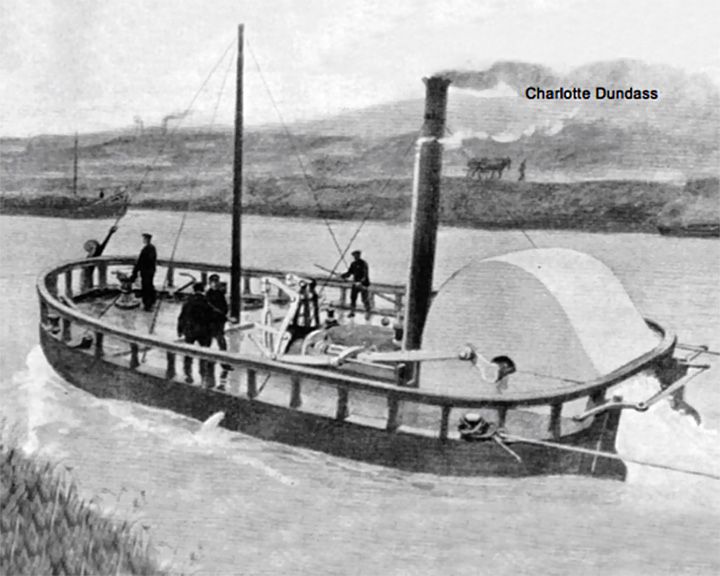 Charlotte Dundas — Scottish steamboat using paddlewheels First towing steamboat and first practical steamboat (second overall); the boat demonstrated the practicality of steam power for ships. Develop by William Symington, the boat employed a horizontal steam engine directly linked to a crank. LAUNCHED: 1801 → FATE: Unknown. |
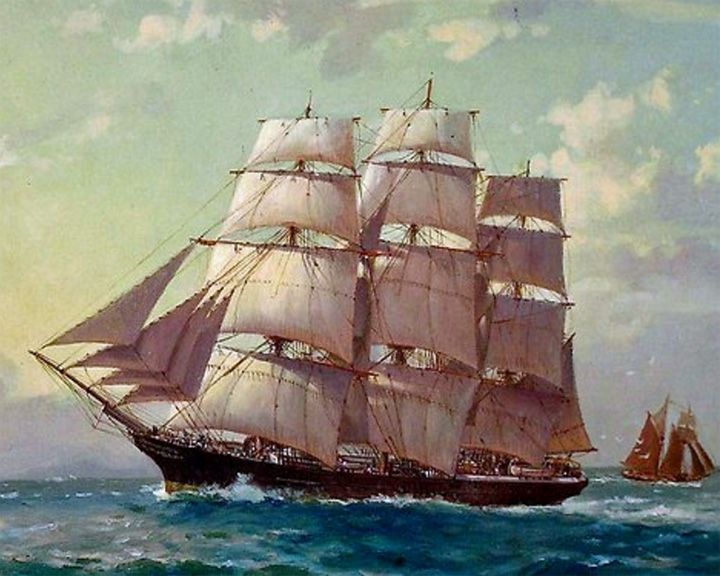 City of Adelaide — English clipper ship The world's oldest surviving clipper ship. From 1864 to 1887, she played an important part in the immigration of Australia. She is now part of the National Historic Ships of the United Kingdom. LAUNCHED: 1864, May 18 → FATE: Out of service since 1948, current being restored. |
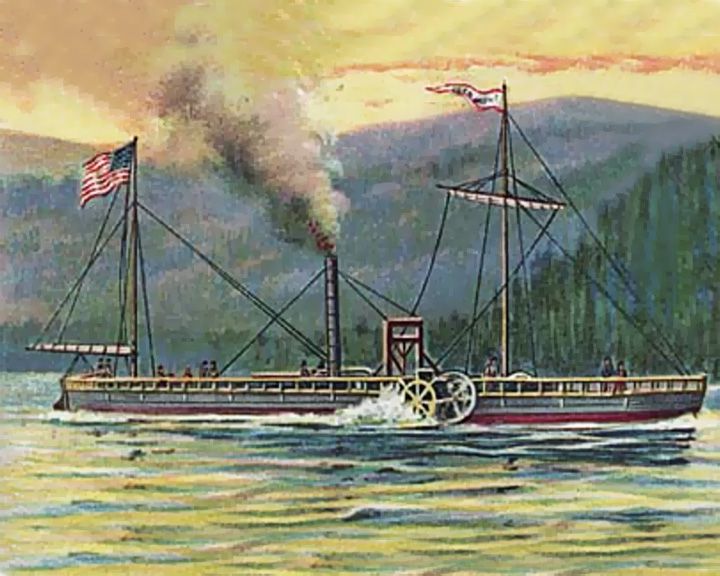 Clermont — American river steamboat First enduring and financially successful steamboat, running on the Hudson River. She was never known as Clermont at the time, but North River Steamboat. After it was lengthened and refitted in 1808 at Clermont, NY, it was named the North River. LAUNCHED: 1807, August 18 → FATE: Retired in 1814, then scrapped. |
 Columbia Rediviva — American full-rigged 3 masted sailing ship First American ship to circumnavigate the globe. In 1792, Captain Robert Gray in command, she was the first ship to enter the Columbia River in the Pacific Northwest. LAUNCHED: 1787 → FATE: Salvaged in 1806. |
|
Page 4
|
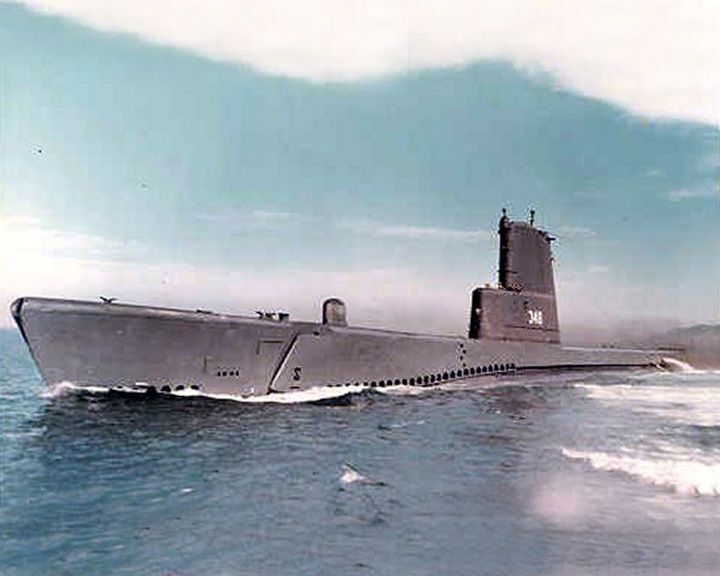 Cusk, USS — American submarine The first submarine to launch a guided missile from her deck. She appeared in the 1950 movie The Flying Missile as the USS Bluefin. LAUNCHED: 1945, July 18 → FATE: Sold for scrap June 26, 1972. |
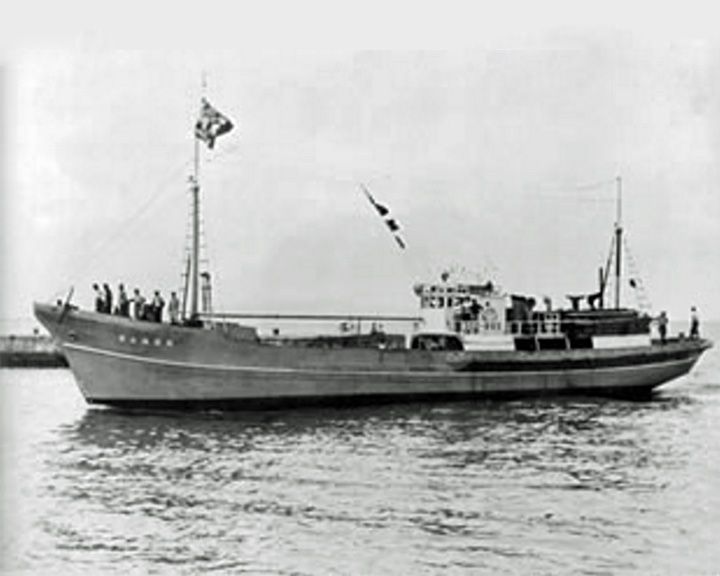 Daigo Fukuryu Maru — Japanese fishing boat First victim of a hydrogen bomb died of radiation poisoning because the ship was too near the test zone. On on March 1, 1954, the boat was contaminated by nuclear fallout from the US's Castle Bravo thermonuclear test on Bikini. On Sept. 23, 1954, the ship's radio operator, Aikichi Kuboyama, succumbed. LAUNCHED: 1947 → FATE: Now on display in Tokyo at the Tokyo Metropolitan Daigo Fukuryu Maru Exhibition Hall in Yumenoshima Park. |
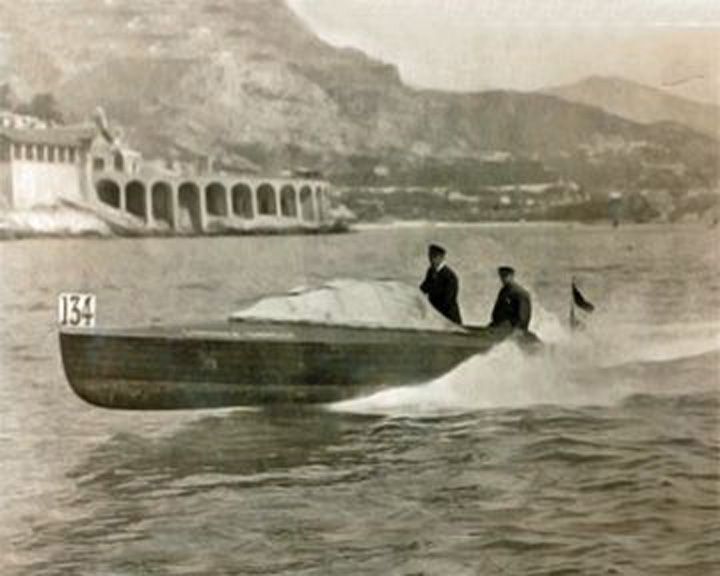 |
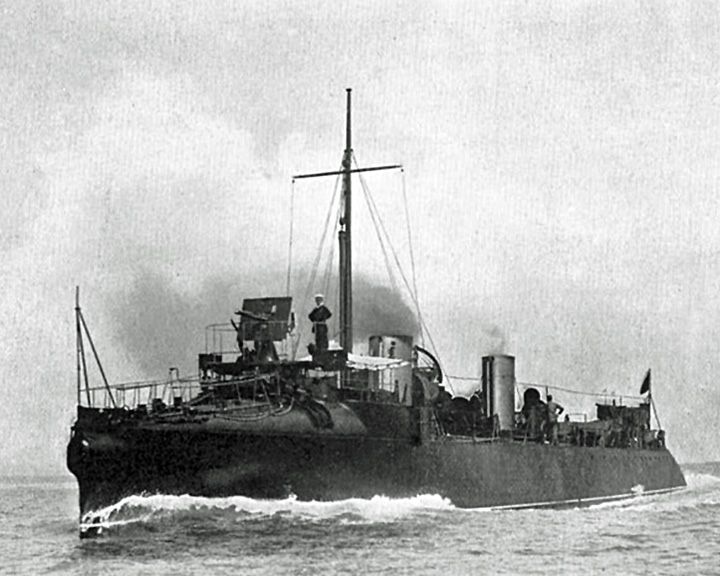 Darling, HMS — British torpedo boat destroyer First destroyer-type ship. Created to defend against torpedo boats. She was described at the time as the "fastest boat ever" having achieved a speed over 28 knots. LAUNCHED: 1893, November 18 → FATE: Scrapped in 1912. |
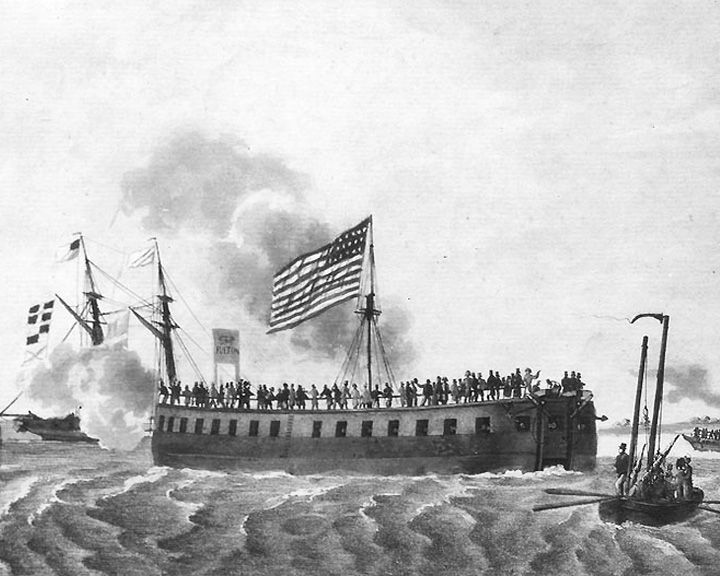 (Another (Another Demologos — American paddle steamers with a catamaran hull First warship to be propelled by a steam engine. Designed by Robert Fulton, with the steam engine between a double hull, no other ship like her was ever built. (See "Another IMAGE" for cross view of her structure.) LAUNCHED: 1815 → FATE: Accidentally blown up in the Brooklyn Navy Yard on June 4, 1829. |
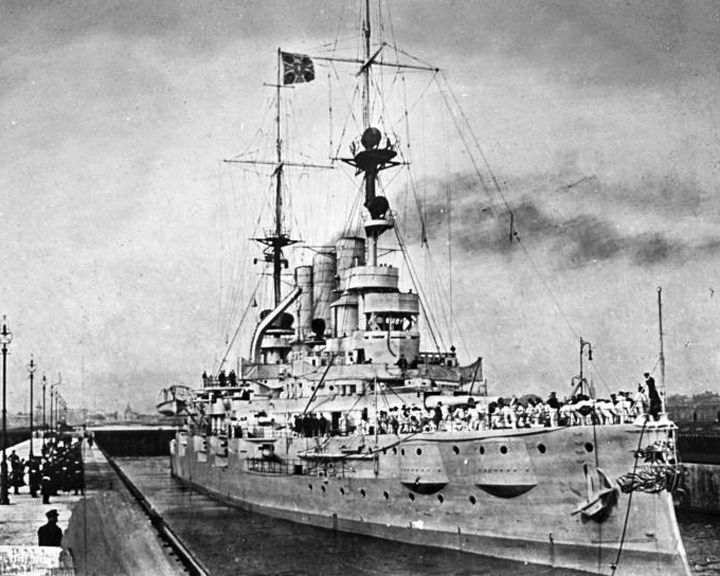 Deutschland, SMS — German battleship First of five Deutschland class pre-dreadnought battleships built for the Kaiserliche Marine between 1903 and 1906. With the launching of the big-gun English HMS Dreadnought battleship, the SMS Deutschland became obsolete. LAUNCHED: 1904, November 18 → FATE: Scrapped in 1920. |
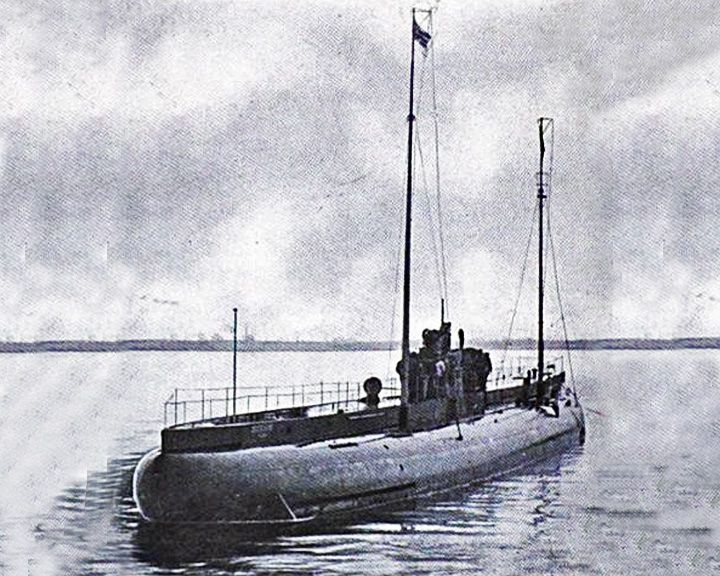 Deutschland, submarine — German submarine First submarine to cross the Atlantic Ocean. She was a blockade-breaking German merchant submarine used during World War I. LAUNCHED: 1916, March 28; converted 1917 June → FATE: Broken up at Morecambe, England in 1922. |
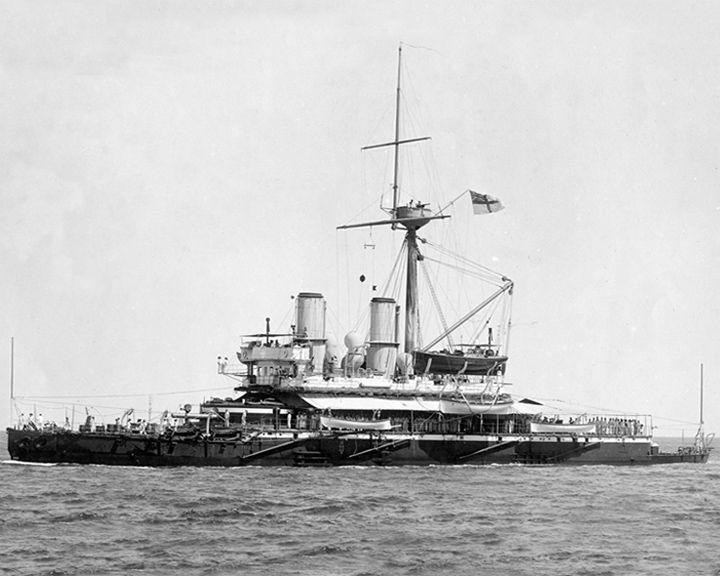
Devastastion, HMS — British Devastation-class ironclad The first ocean-going capital ship not carry sails, and the first with the entire main armament mounted on top of the hull rather than inside it. Originally conceived as a ocean-going breastwork monitor, she was redesignated as 2nd Class Turret ships in 1886 and finally as 2nd Class Battleships by the 1900. LAUNCHED: 1874 → FATE: Was scrapped in 1908. |
|
Page 5
|
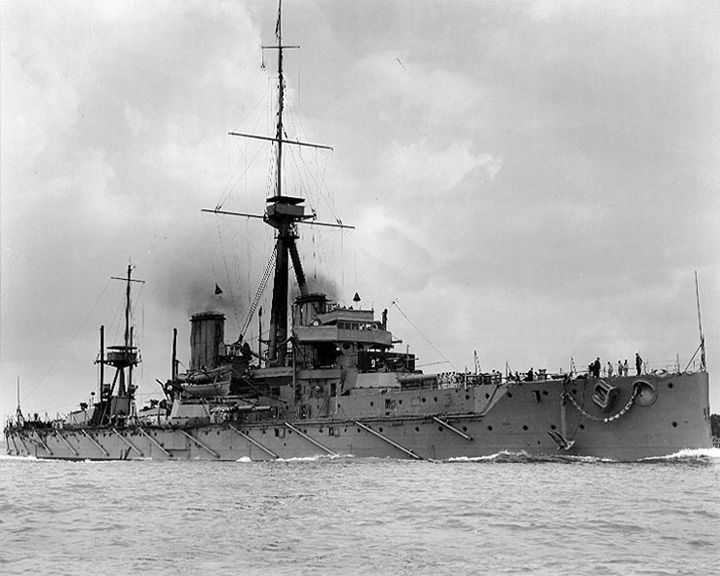 Dreadnought, HMS — British dreadnought battleship First "all-big-gun" armament and steam turbine propulsion. She revolutionized naval power and started a naval arms race. LAUNCHED: 1906, February 18 → FATE: Sold for scrap in 1923. |
 Driver, HMS — British side-wheeler paddle sloop First steamship to circumnavigation the globe. She was the first steamship to visit New Zealand, arriving January 1846, and was involved in the New Zealand Wars. LAUNCHED: 1840, December 18 → FATE: Wrecked on Mayaguana Island on August 3,1861. |
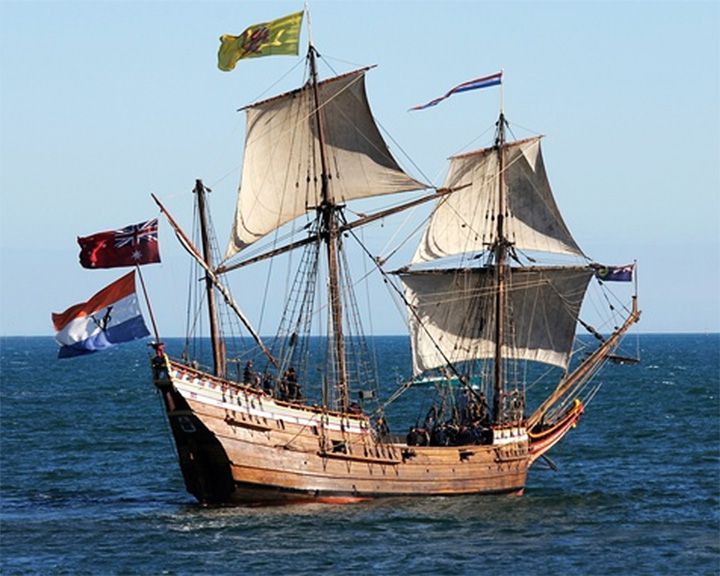 Duyfken — Dutch barque First authenticated European discovery of Australia, 1606. Prior to finding Australia, she explored much of South Pacific including the "Spice Islands" as part of the Dutch East Inda Company fleet. Her replica was built in Australia. LAUNCHED: 1595, original ship; replica launched January 24, 1999 → FATE: Condemned and dismantled in July 1608; replica on display at Elizabeth Quay in Perth, Austrailia. |
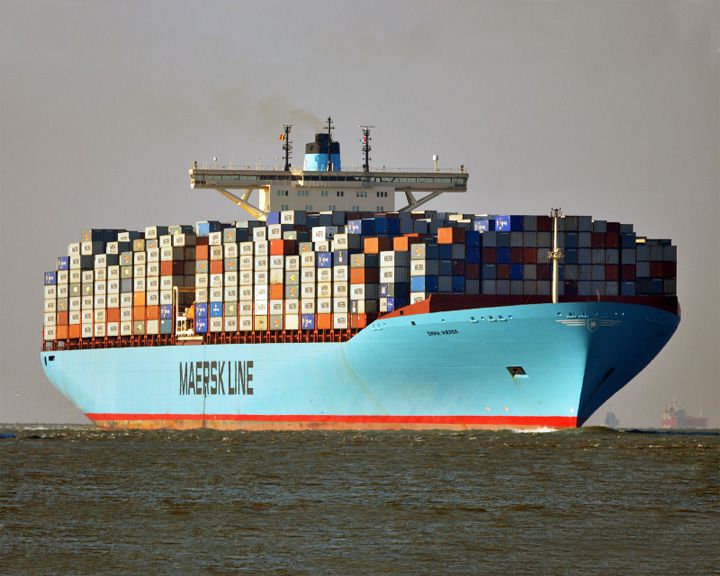 (Another (Another Emma Maersk — Danish container ship (cargo ship) First of the larger container ships. She was once dubbed SS Santa because she was bound for the United Kingdom from China loaded with Christmas goods. During construction, welding work caused a fire that spread throughout the ship. LAUNCHED: 2006, May 18 → FATE: Still in service. |
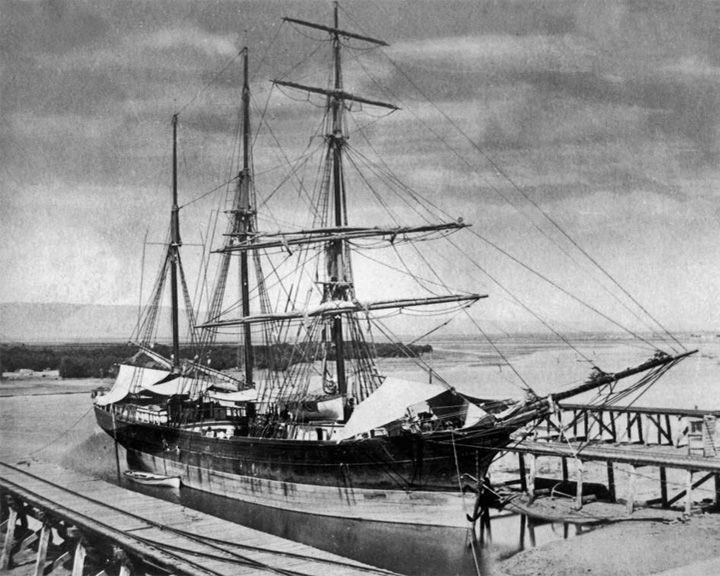 Empress of China — American three-masted, square-rigged sailing ship First American ship to sail from the newly independent United States to China, opening what is known today as the Old China Trade. She left New York harbor on Washington's birthday, February 22, 1784 and returned to New York after a round voyage of fourteen months and twenty-four days. LAUNCHED: 1783 → FATE: Unknown. |
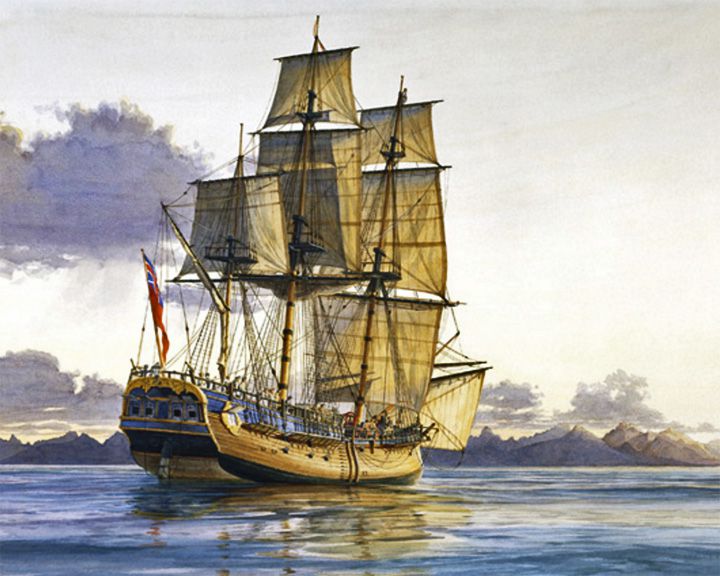 (Another (Another Endeavour, HMS — British collier, three-masted; refitted in 1768 for the expedition James Cook's ship during his voyage to explore the Pacific Ocean and Terra Australis Incognita. She became the first ship to reach the east coast of Australia at Botany Bay in April 1770, and went on to circumnavigate the world. LAUNCHED: 1764, June → FATE: Later renamed Lord Sandwich. Scuttled in a blockade of Narragansett Bay, Rhode Island, in 1778. |
 Enterprise, USS — American aircraft carrier World's first nuclear powered aircraft carrier and the eighth U.S. Naval vessel to bear the name. As one of the oldest carriers in the fleet, she was deactivated in 2012 at which time a Gerald R. Ford class carrier, CVN-80, will inherit the name Enterprise. LAUNCHED: 1960, September 18 → FATE: Put in storage in 2017. |
 Eureka — American paddle steamboat, stern-wheeler, ferry The largest wooden passenger ferry ever built, certified to carry 3,500 people. She was the last example of the fleet of ferry boats carrying passengers and vehicles across the San Francisco Bay. LAUNCHED: 1890 → FATE: Preserved at the San Francisco Maritime National Historical Park. |
|
Page 6
|
 Faith, SS — American Concrete cargo steamer The first concrete ship built in the United States and the largest in the world at the time at 336.5 feet (102.6 meters) and 8000 tons. The first successfully launched cement ship was the 84 foot-400 ton Namsenfjord on August 2, 1917, N.K. Fougner of Norway. LAUNCHED: 1918, March 14 → FATE: After being cracked during a Gulf storm in 1921, she was towed to Cuba for use as a breakwater. |
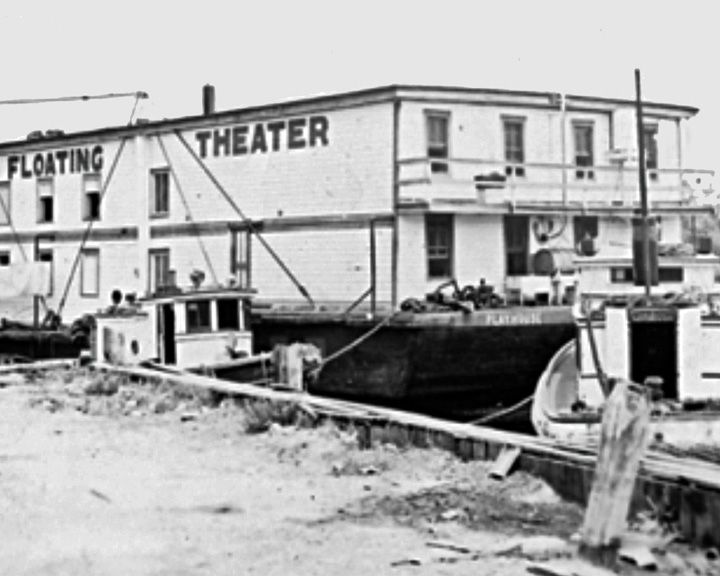 (Another (Another Floating Theater — American caravel The first deliberately-planned showboat, created by British-born actor William Chapman, Sr.; replaced by a new steamboat with a stage and named Steamboat Theatre. In 1914, circus actors James Adams and his wife launched the James Adams Floating Theatre, a showboat that would tour the Chesapeake Bay. LAUNCHED: 1831, and 1836 → FATE: Both unknown. |
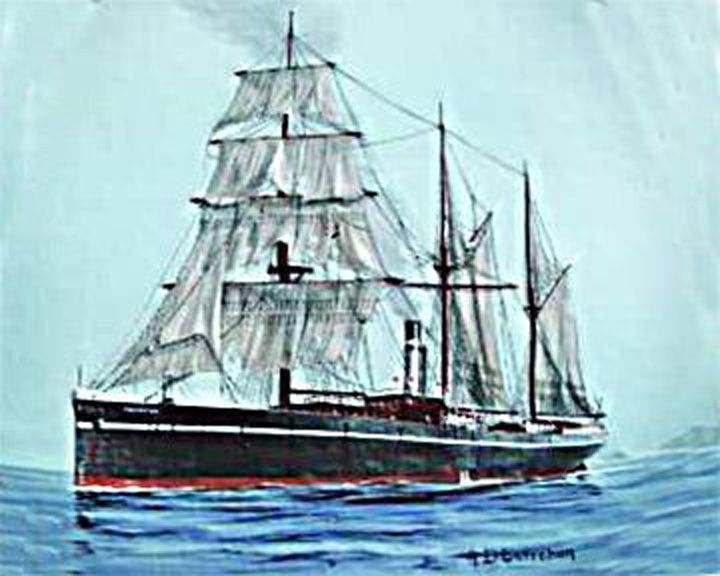 (Another (Another Frigorifique — French steamship First to carry frozen meat across the ocean; from Argentina to France. The first commercially successful shipment of frozen meat that launched the industry was by the steamship Dunedin from New Zealand to England in 1882. LAUNCHED: 1876 → FATE: Sank after a collision with British coal freighter Rumney along the coast of France in March of 1884. |
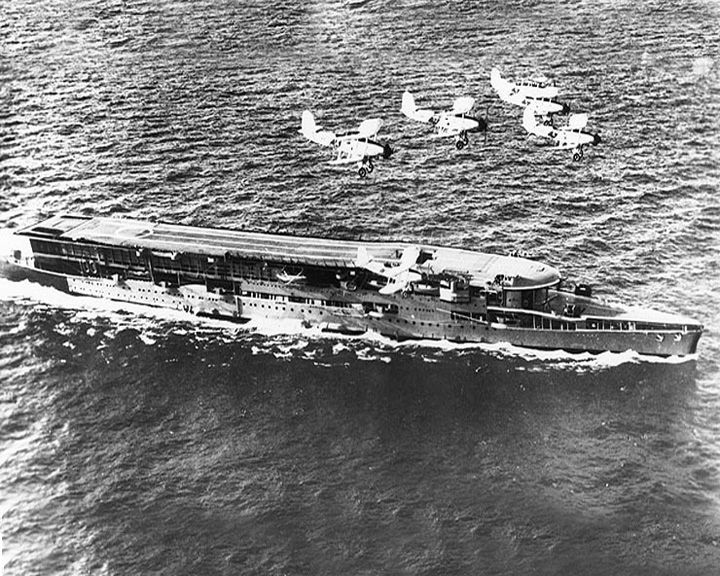 Furious, HMS — British battlecruiser (modified while under construction as an aircraft carrier) First aircraft carrier; her forward turret was removed and a flight deck was added in its place. Spent last of World War I and much of World War II as an aircraft ferry. LAUNCHED: 1916, August 18 → FATE: Sold for scrap in 1948. |
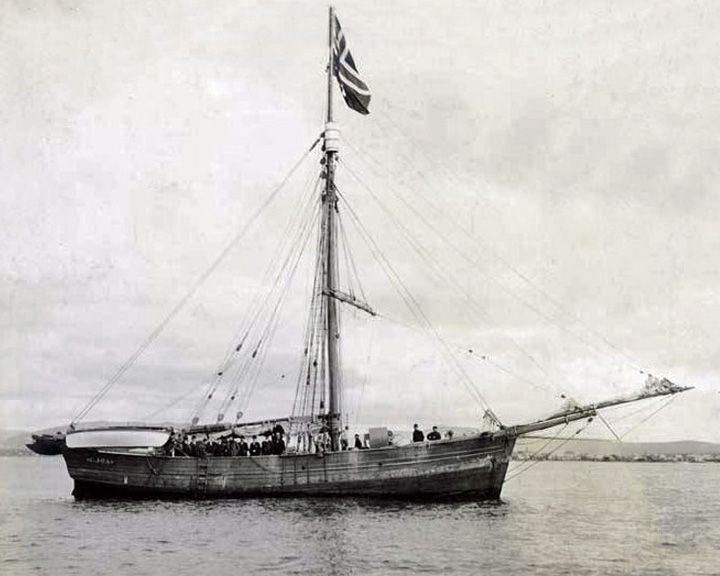 Gjøa — Norwegian sloop, square sterned The first vessel to transit the Northwest Passage. She reached San Francisco in 1906 where she was put on display, but slowly deteriorated until 1949 when she was refurbished. Then in 1972 she was returned to Norway. LAUNCHED: 1872 → FATE: On display at the Fram Museum in Bygdøy, Norway. |
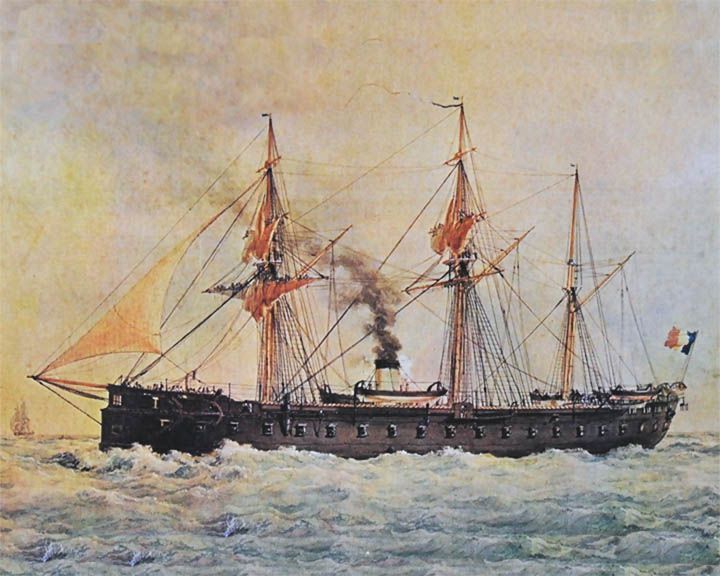 Gloire — French ocean-going ironclad First ocean-going ironclad, developed in response to navel gun technology, including the Paixhans gun, thus rendering obsolete traditional unarmoured wooden ships-of-the-line. She was constructed with light barquentine sails as well as a steam-powered screw. LAUNCHED: 1859, November 18 → FATE: Scrapped in 1883. |
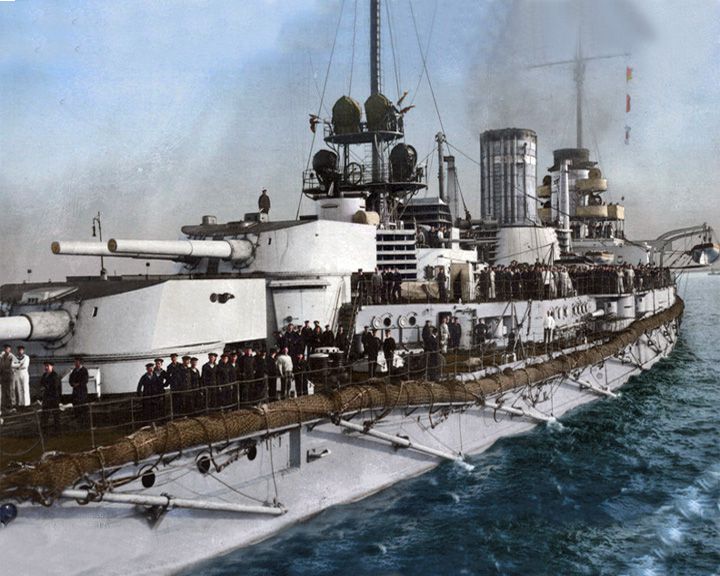 Goeben, SMS — German battlecruiser Last surviving ship built by the Imperial German Navy, and the longest-serving battlecruiser or dreadnought-type ship in any navy. During World War I, she and light cruiser Breslau were transferred to the Ottoman Empire, August of 1914, and became the flagship Yavuz Sultan Selim. LAUNCHED: 1911, March 18 → FATE: Scrapped in 1973. |
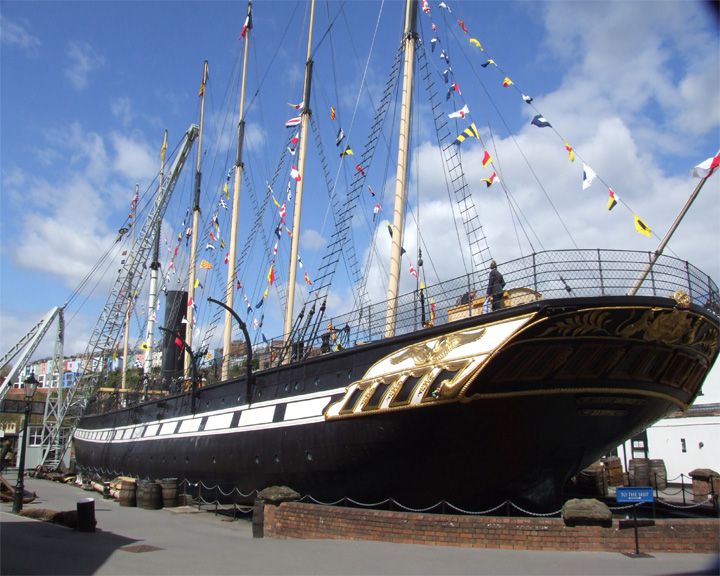 (Another (Another Great Britain, SS — British steamship, passenger ship First steamer to cross the Atlantic. Also first built of iron and with a screw propeller. She ran aground in 1846 and was sold for salvage, repaired and revised. In 1881 she was converted to sail. In 1937 she was retired and scuttled. In 1970 she was recovered and eventually restored as a museum ship. LAUNCHED: 1845, July 18 → FATE: Now a museum ship in Bristol Harbour. |
|
Page 7
|
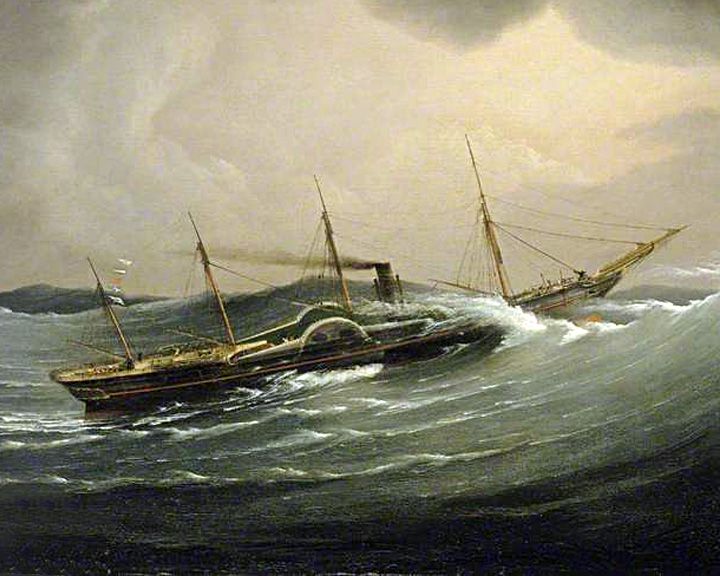 Great Western, SS — British paddle steamboat, side-wheeler First paddle ship built for crossing the Atlantic; completed the crossing in April of 1838. In later years, she was used as a showboat, a floating palace/concert hall and gymnasium. LAUNCHED: 1837, July 18 → FATE: Taken out of service December of 1846, she was broken up in 1856. |
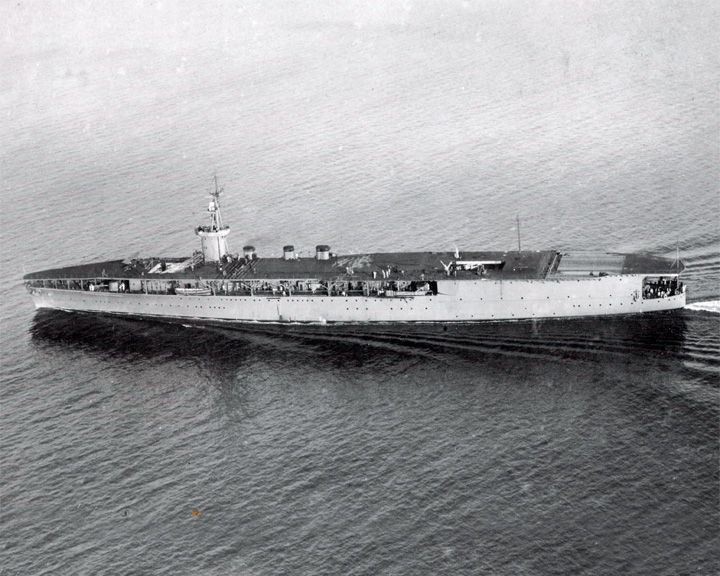 Hōshō — Japanese aircraft carrier First ship designed and built as an aircraft carrier. During World War II, she participated in the Battle of Midway in a secondary role. Afterward, she returned to Japan as a training ship for the duration of the war. LAUNCHED: 1922 → FATE: Scrapped in 1948. |
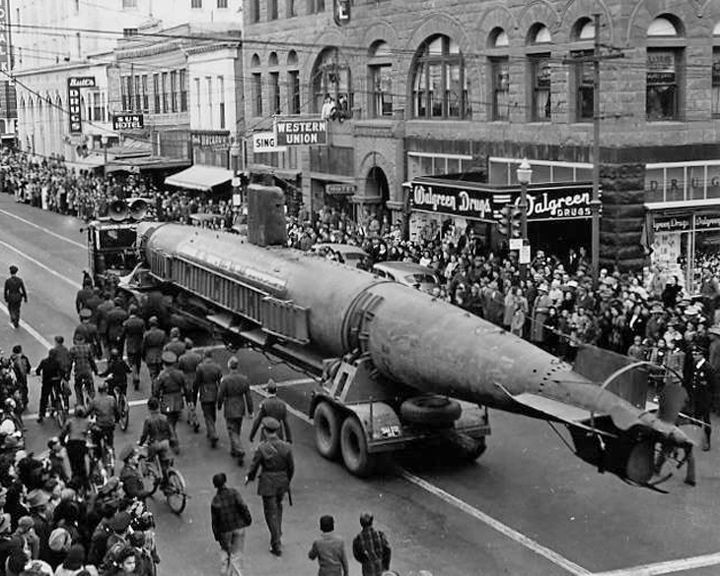 HA. 19 — Japanese midget submarine First shot fired by the U.S. in the World War II was at this minisub as it tried to enter Pearl Harbor. Grounded and abandoned after failing to fired any torpedos, she was pulled out of the sea and was sent to the US mainland in January 1942 where she went on war bond tours. LAUNCHED: 1938 → FATE: On exhibit at the National Museum of the Pacific War in Texas to where she was moved in 1991. |
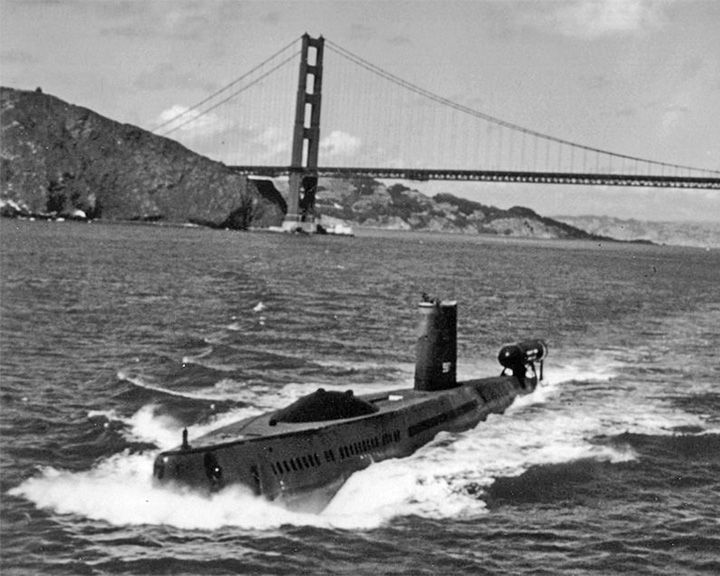 Halibut, USS — American attack submarine Unique nuclear-powered guided missile submarine, adapted for spying operations. In the 1970s, she was used on secret underwater espionage missions by the US against the Soviet Union including the underwater tapping of a Soviet communication line (see Operation Ivy Bells). LAUNCHED: 1959, January 9 → FATE: Moth-balled 1976, dismantled in 1994. |
 Hannah, USS — American schooner The first armed American naval vessel of the American Revolution and is claimed to be the founding vessel of the US Navy. The city of Beverly, Massachusetts and the town of Marblehead, Massachusetts each claim to have been the home port of the schooner. LAUNCHED: 1775, September 2 → FATE: Unknown. |
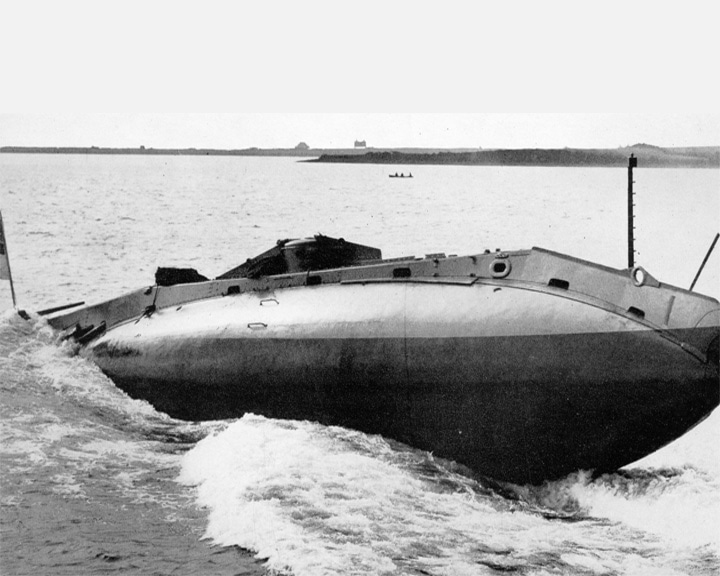 Holland I, HMS — British submarine The first submarine commissioned by the Royal Navy. While being towed to the scrapyard she sank in bad weather off the coast of Eddystone lighthouse. LAUNCHED: 1901, October → FATE: On display at Royal Navy Submarine Museum, Gosport. |
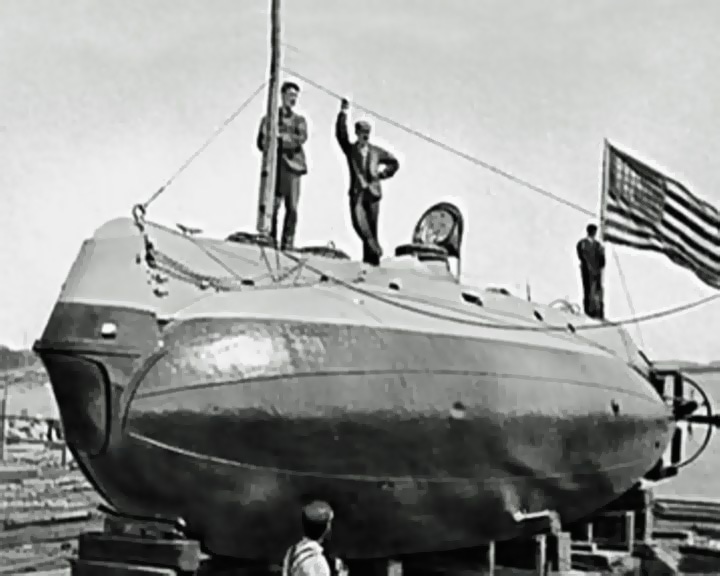 Holland, USS (SS-1) — American submarine First modern commissioned submarine for the US Navy. She proved valuable for experimental purposes in collecting data for submarines under construction or contemplation and for training officers and enlisted men. LAUNCHED: 1897, May 17 → FATE: On display in a park in Paterson, New Jersey until sold for scrap, 1932. |
 Hood, HMS — British battle cruiser Last battle cruiser built by Britain. Of the 1,418 aboard, only three men survived. LAUNCHED: 1918, August 18 → FATE: Sunk by the German battleship Bismarck at the Battle of the Denmark Strait May of 1941. |
|
Page 8
|
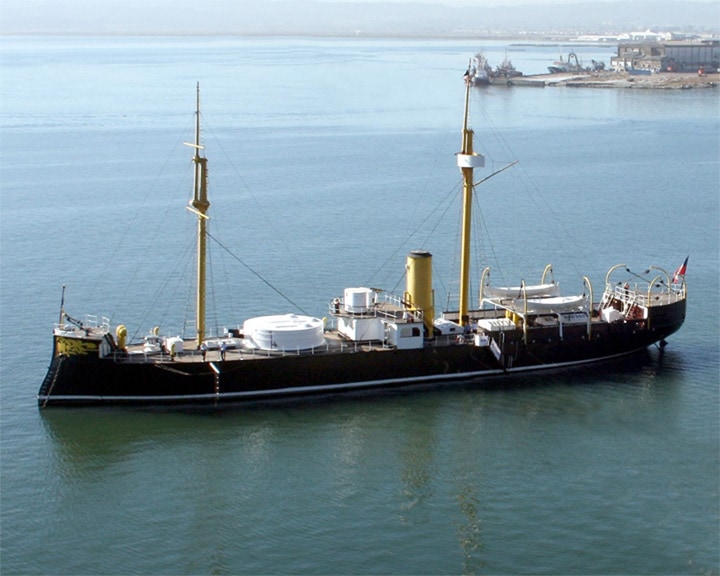 (Another (Another Huáscar — Peruvian iron-clad turret ship The flagship of the Peruvian Navy and participated in the Battle of Pacocha and the War of the Pacific of 1879–1883. She is the second oldest armored warship afloat and the oldest monitor afloat LAUNCHED: 1865, October 6 → FATE: She was restored and is a memorial ship anchored in Talcahuano, Chile. |
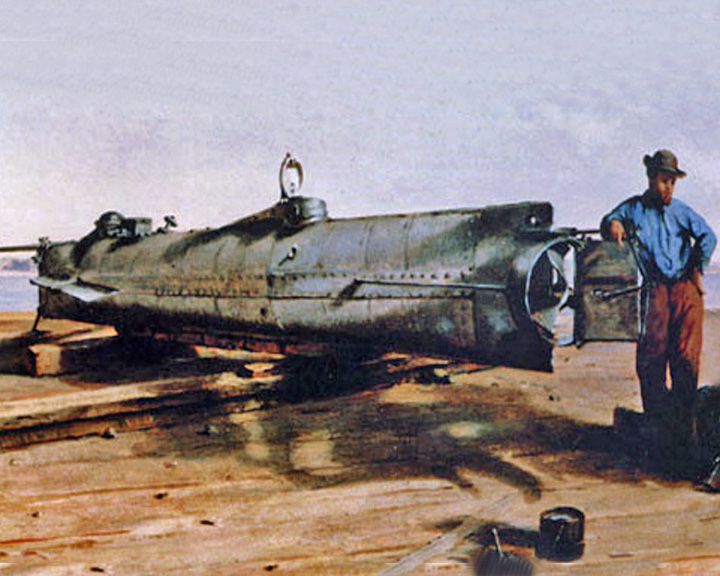 Hunley, H.L. — American Confederate submarine During the American Civil War, the first submarine to sink a ship. She a ttacked by embedding a barbed spar torpedo into the foe's hull and detonating it as she backed away. LAUNCHED: 1863, July → FATE: Sank after attacking and sinking USS Housatonic in Charleston Harbor, February 17, 1864. |
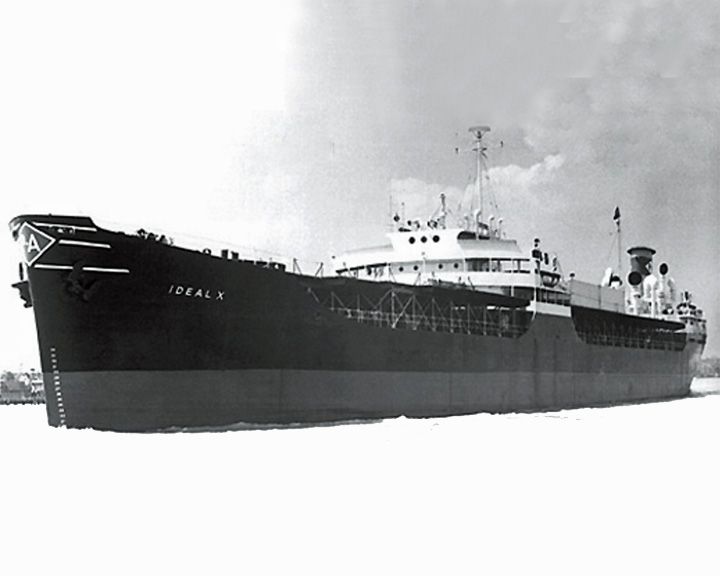 Ideal X, SS — American cargo ship (container ship) First container ship. She was converted from a World War II T-2 oil tanker named Potrero Hills by a trucking executive named Malcolm McLean. LAUNCHED: 1944, December → FATE: Scrapped in Japan in 1967. |
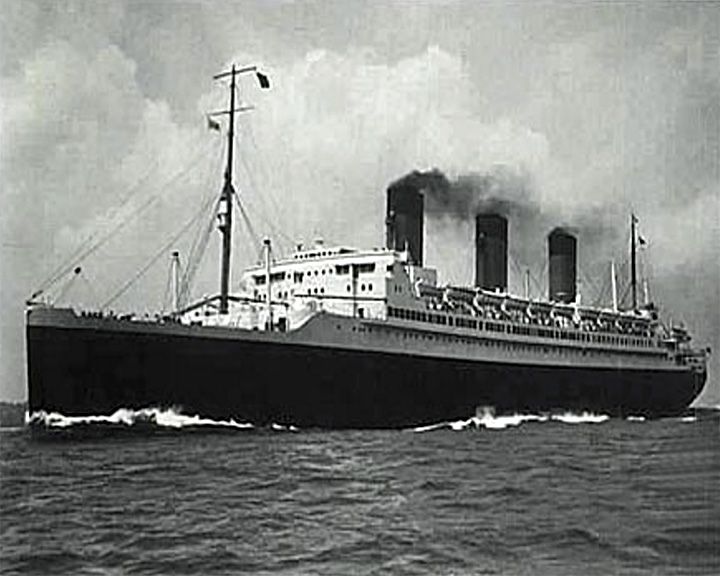 Ile de France, SS — French ocean liner Used as a floating prop for 1960 movie The Last Voyage with the name SS Claridon. She was the first major transatlantic ocean liner to be decorated entirely in the Art Deco style. LAUNCHED: 1926, March 18 → FATE: Scrapped at Osaka, Japan in 1959. |
 Indiana, USS (BB-1) — American battleship First battleship in the United States Navy comparable to foreign battleships of the time. Decommissioned in 1919, her name was changed to Coast Battleship # 1. She was subsequently used as a target in ordnance tests and sank as a result. LAUNCHED: 1893, February 28 → FATE: Sunk as target on November 1, 1920 |
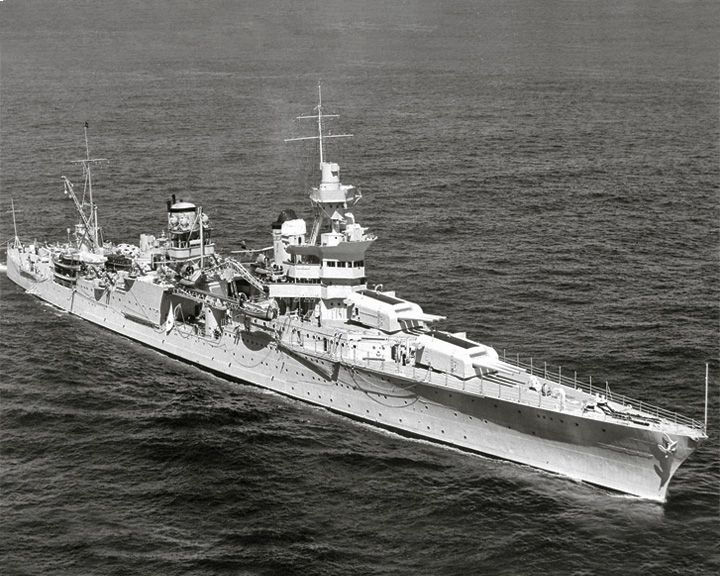 Indianapolis, USS — American Portland-class cruiser Last U.S. ship sunk by enemy in World War II; greatest loss of life at sea in the U.S. Navy's history. Four days after delivering the 1st atomic bomb to Tinian, she was torpedoed and sank with 300 crew. The 900 survivors faced exposure, dehydration, and shark attacks until 4 days later only 317 were rescued. LAUNCHED: 1931, November 18 → FATE: Sunk by a Japanese submarine July 30, 1945. |
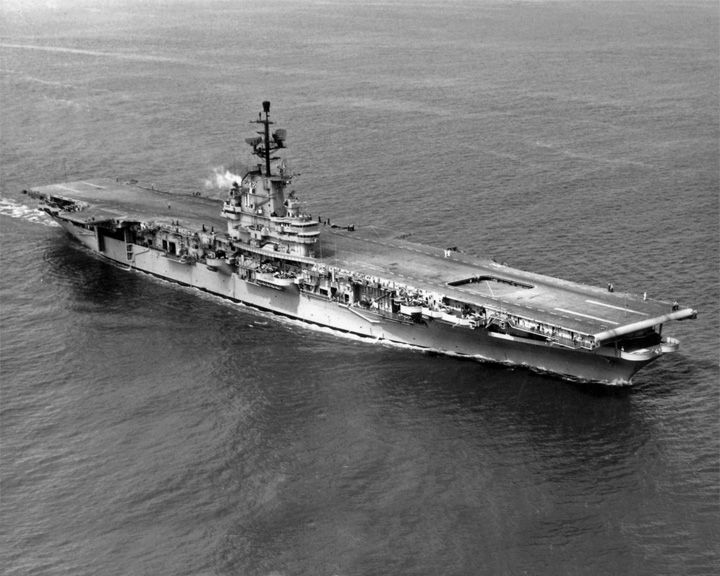 Intrepid, USS — American aircraft carrier; Essex-class In World War II, served extensively in the Pacific; later recovered capsules in space program. Upgraded several times; first American carrier to launch aircraft with steam catapults. One of more than a dozen English and American ships and boats named Intrepid. LAUNCHED: 1943, April 18 → FATE: Currently a museum ship docked at Intrepid Sea, Air & Space Museum in New York City. |
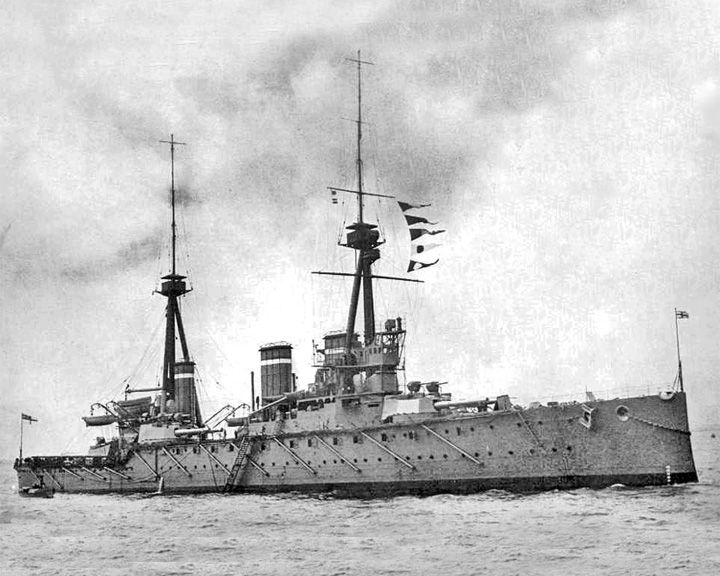 Invincible, HMS — British battlecruiser First battle cruiser to be built by any country in the world. She is one of seven ships named Invincible in the British navy from 1747 to the present. LAUNCHED: 1907, April 18 → FATE: Sunk by the German battleship SMS Lützow at the Battle of Jutland, May 31, 1916. |
|
Page 9
|
 (Another (Another Iowa, USS — American fast battleship First of her class, the last battleship in active service in the world. During a gunnery exercise, on April 19, 1989, an explosion ripped through a gun turret, killing 47 crewmen. LAUNCHED: 1942, August 18 → FATE: Anchored at San Pedro as a museum ship. |
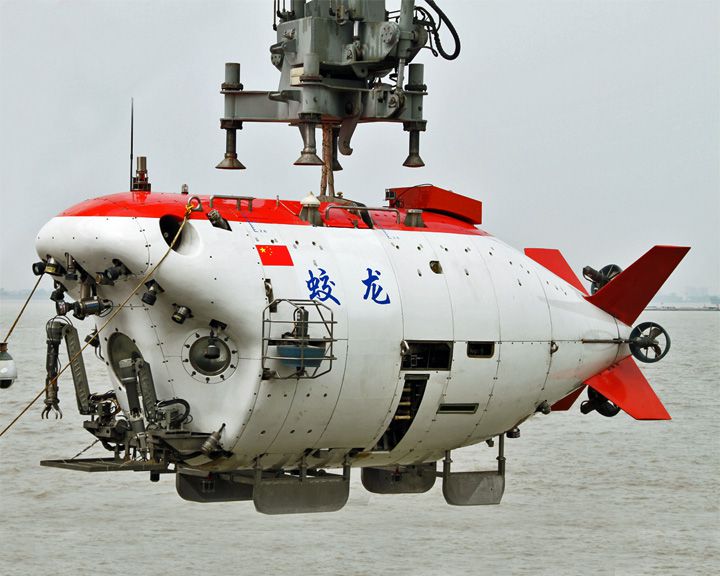 Jiaolong — Chinese research vessel, submersible World's first manned research submersible designed to reach a depth of 7,000 meters below sea level. Named after a mythical river dragon, spiritually akin to the crocodile. LAUNCHED: 2010, July → FATE: Still in operation. |
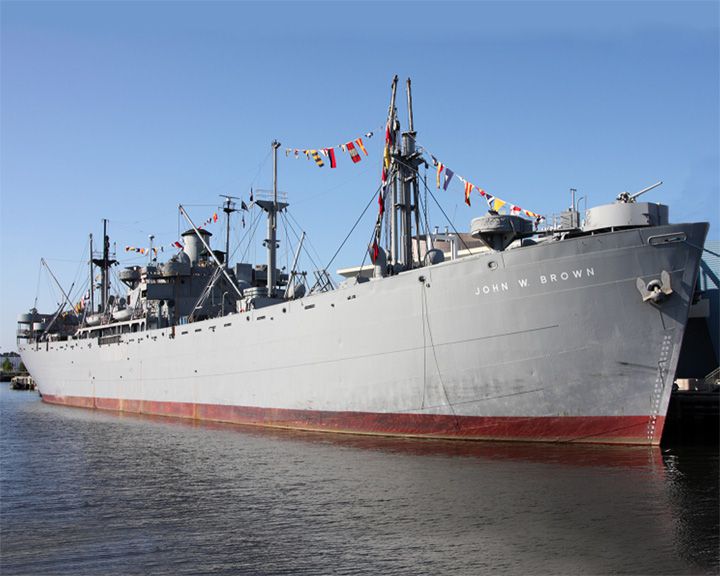 John W. Brown, SS — American liberty ship One of two still operational and one of three preserved as museum ships. After making 12 troop and cargo voyages across the Atlantic during World War II, she served as a training ship from 1946 to 1982. LAUNCHED: 1942, September 7 → FATE: After restoration, now a floating museum stationed in the Chesapeake Bay, Baltimore, Maryland. |
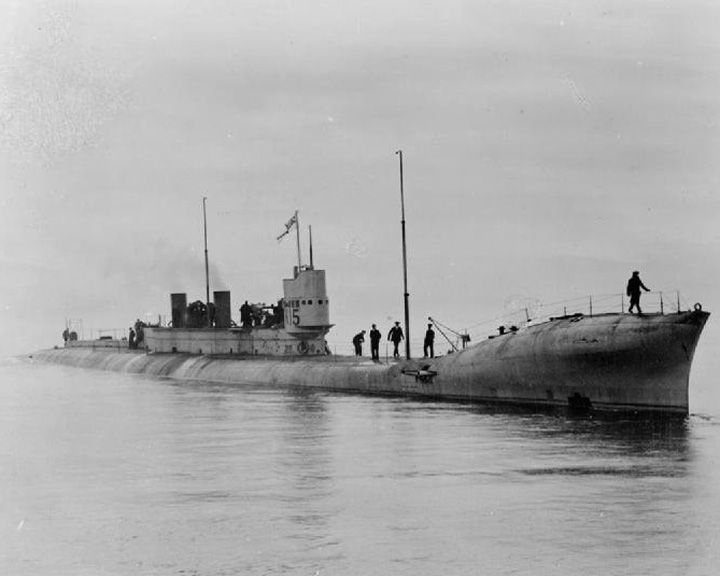 K-13 — British K-class submarine The first in the class of the steam-powered submarines. She sank in an accident during sea trials in early 1917 and was salvaged and recommissioned as HMS K22. 32 people died in the accident and 48 were rescued. LAUNCHED: 1916, November 11 → FATE: Sold for scrapping December 16, 1926 in Sunderland. |
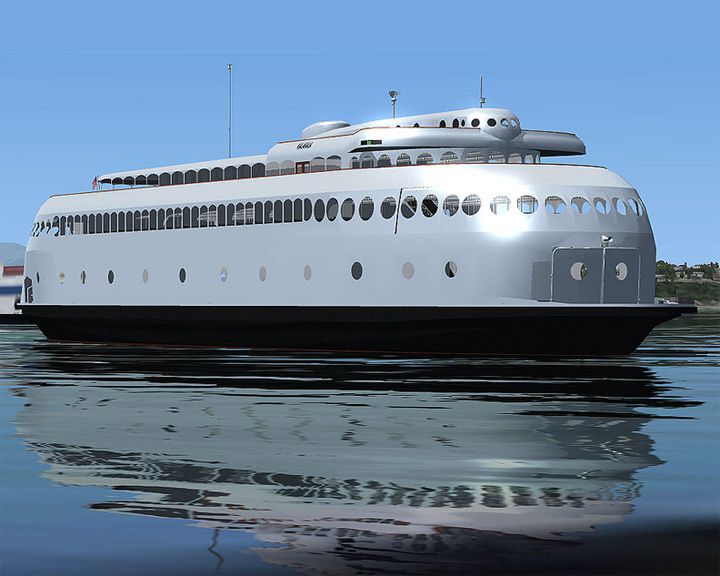 (Another (Another Kalakala — American ferry The first streamlined ferry with Art Deco styling and luxurious amenities served in Puget Sound from 1935 to 1967. From 1926 to 1933, she sailed as the ferry Peralta; after a fire, the superstructure was rebuilt in modern style. LAUNCHED: 1926, April as Peralta; relaunch 1934 → FATE: Moored at Tacoma, Washington. |
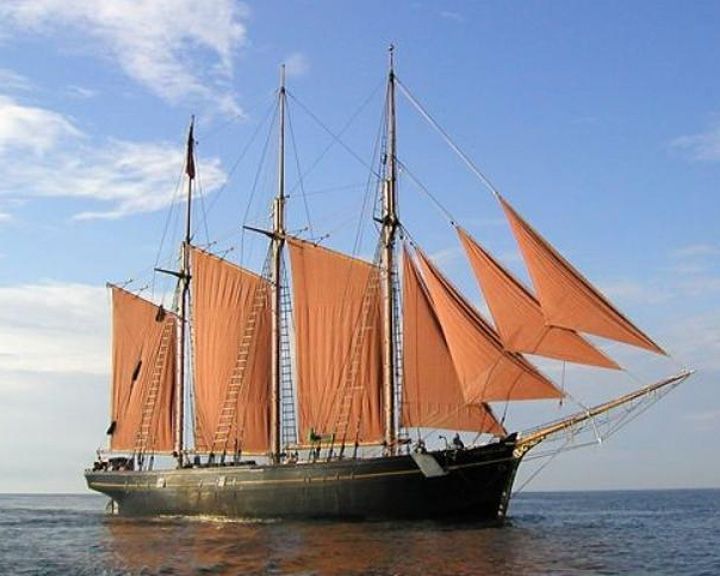 Kathleen and May — British three masted schooner Last remaining British built wooden hull three-masted top sail schooner. Originally equipped with the first known fitting of Appledore roller reefing. After years of service, during restoration in 2000, 70% of the original planking was stripped from the frames, enabling most of her internal timbers to later be refitted. LAUNCHED: 1900, April → FATE: Restored and based in Bideford on the River Torridge. |
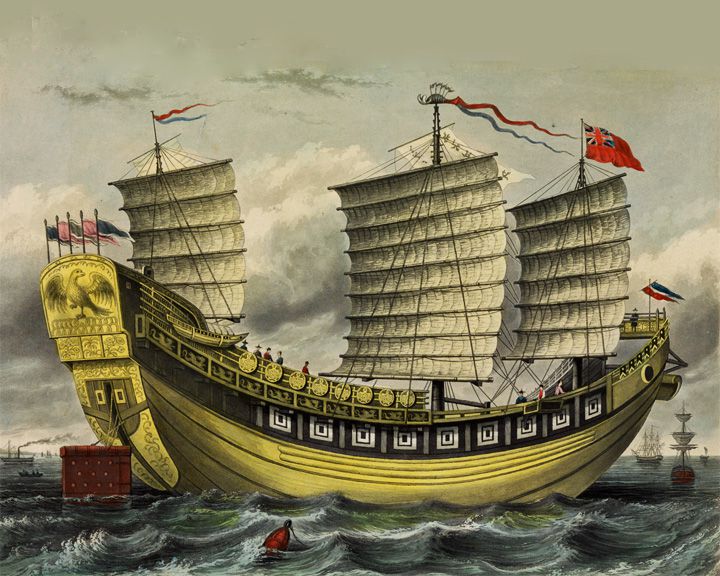 Keying, Junk — Chinese junk, three-masted (trading ship) The first ship from China to visit New York where it was visited by 4,000 tourists a day paying 25 cents to board the ship and meet its crew. She was manned by 30 Chinese and 12 Englishmen, and commanded by the British Captain Charles Alfred Kellett during her travel. LAUNCHED: 1846, circa → FATE: Neglected and rotted in England in 1855. |
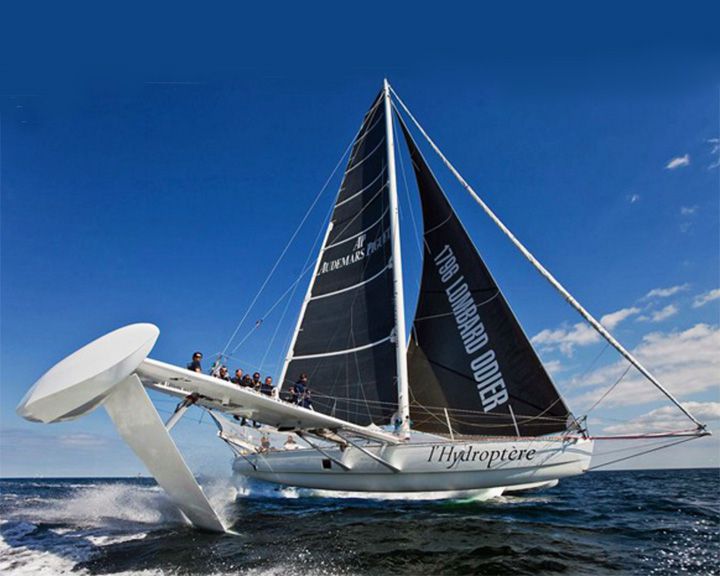 L'Hydroptère — French speed sailboat; experimental Currently the world's fastest sailboat. In 2008, it reached a sailing speed of 56.3 knots, the first sailboat to ever pass 100 km/h. LAUNCHED: 2008 → FATE: Still sailing. |
|
Page 10
|
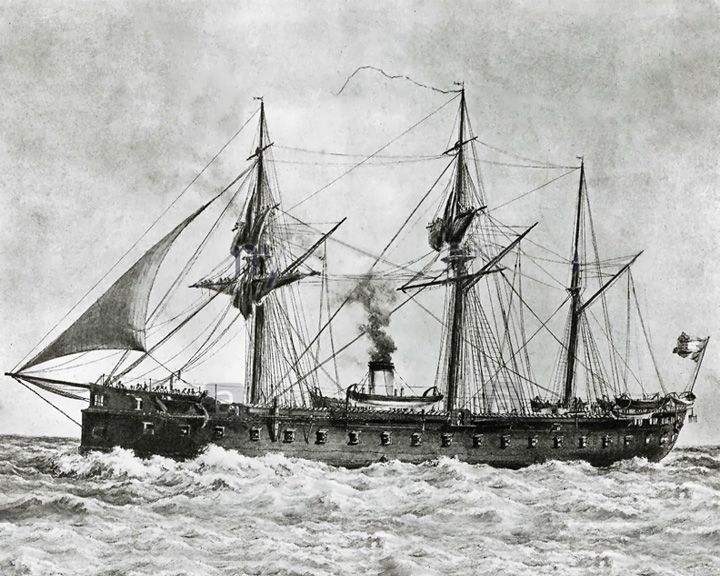 La Gloire — French battleship, steamer The first ocean-going ironclad battleship in history. The ship initiated the obsolescence of traditional unarmored wooden ships-of-the-line. LAUNCHED: 1859, November → FATE: Scrapped in 1883. |
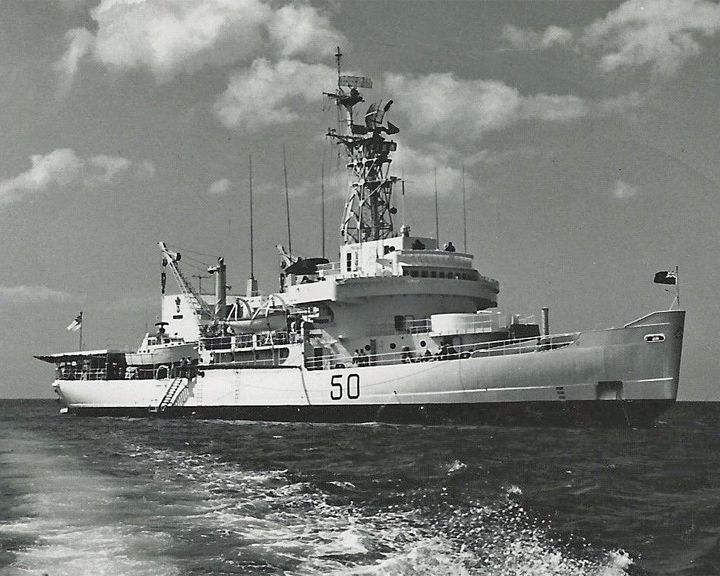 Labrador, CCGS — Canadian Wind-class icebreaker The first ship to circumnavigate North America in a single voyage and first warship to transit the Northwest Passage. Her career marked the beginning of the CCG's icebreaker operations which continue to this day. LAUNCHED: 1951, December 14 → FATE: Sold for scrap and broken up 1989. |
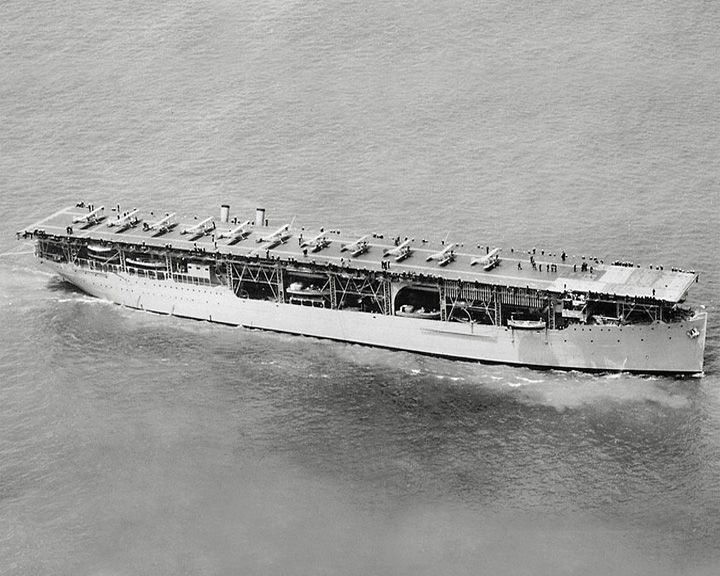 Langley, USS — American aircraft carrier First American aircraft carrier and U.S. Navy's first turbo-electric-powered ship. Following a conversion in 1936 to a seaplane tender, she fought in World War II. LAUNCHED: 1911, built as a collier converted in 1920 → FATE: Attacked and badly damaged by Japanese planes, she was scuttled, February 27, 1942. |
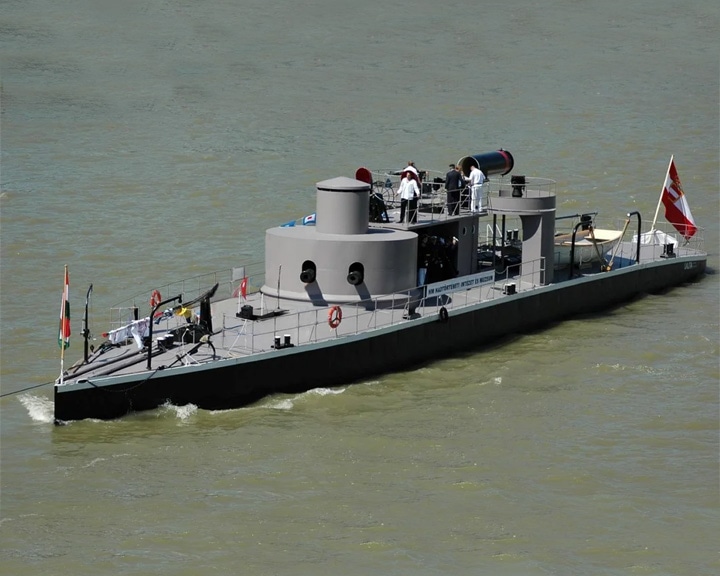 Leitha, SMS (later named Lajta) — Austro-Hungarian river monitor The first river monitor in Europe. The oldest and the only restored warship of the Austro-Hungarian Navy. In October 1914, her turret took a direct hit, all the crew inside being killed. LAUNCHED: 1872, October 13 → FATE: Restored in 2009, Lajta is currently moored on the Danube in Budapest as a museum ship |
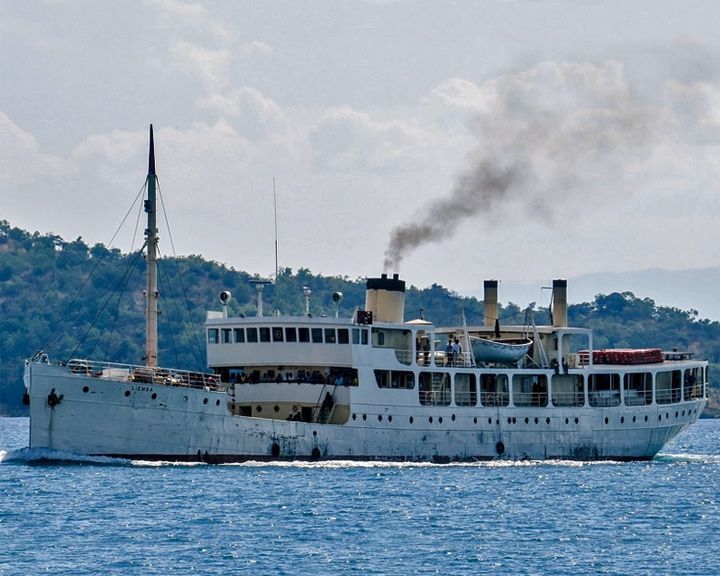 Liemba, MV — German ferry, passenger and car The last vessel of the German Imperial Navy still sailing. She was the inspiration for the German gunboat in the novel and movie The African Queen. LAUNCHED: 1915, February → FATE: Scuttled July 26, 1916; raised in 1927, still in service on Lake Tanganyika. |
 Lightning, HMS — British torpedo boat The first ship to launch self-propelled torpedos. She was used exclusively with HMS Vernon, a torpedo school ship at the Royal Navy's Torpedo Branch at Portsmouth, England. LAUNCHED: 1876 → FATE: Scrapped in 1896. |
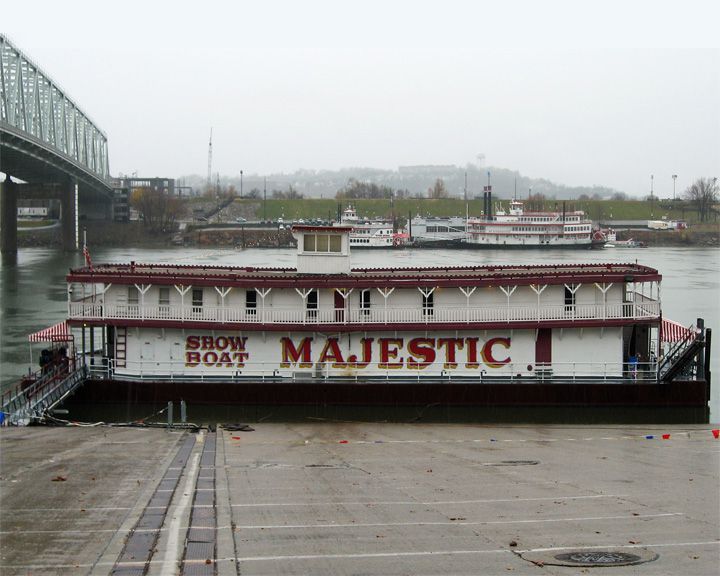 (Another (Another Majestic — American paddle steamboat, stern-wheeler showboat The last of the original traveling showboats. Now the riverboat is a venue for comedies and musicals. LAUNCHED: 1920 → FATE: Currently docked at the Cincinnati Public Landing in Ohio. |
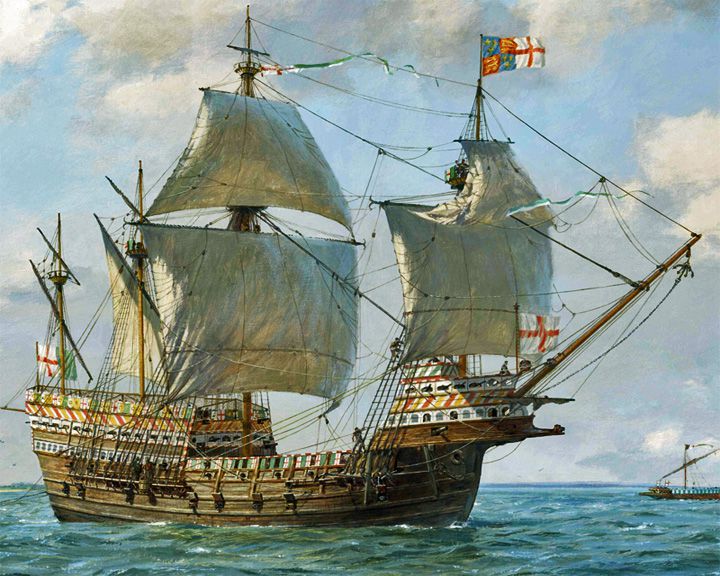 Mary Rose — English carrack-type warship One of the earliest ships built for war sporting the innovation of gun ports. The wreck of the Mary Rose was rediscovered in 1971 and salvaged in 1982. LAUNCHED: 1512 → FATE: Sank in the straits north of the Isle of Wight, 1545. |
|
Page 11
|
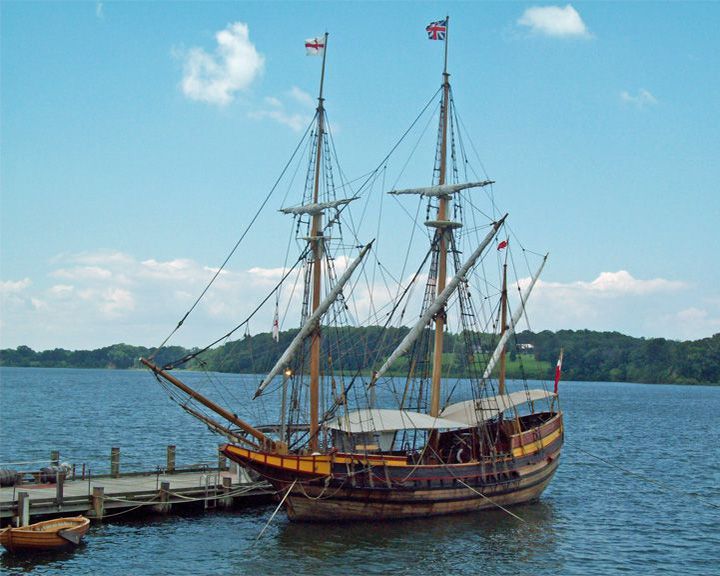 Maryland Dove — American merchant vessel Replica of the Dove, one of two early 17th-century English ship that, in 1634, brought the first settlers to what is now Maryland. The original Dove was the smaller of the two ship, used in shallow waterways along the coast. The accompanied ship with 140 passengers was the Ark. LAUNCHED: 1978, August 18 → FATE: On exhibit at Historic St. Mary's City and occasionally other ports. |
 Matthew — English caravel Sailed by John Cabot, first European to reach North America. Apparently, she was a small ship of fifty tons carrying twenty men and food for seven or eight months. LAUNCHED: 1496, or earlier; replica launched 1996 → FATE: Original ship, unknown; replica on display at M Shed Museum, Bristol, England. |
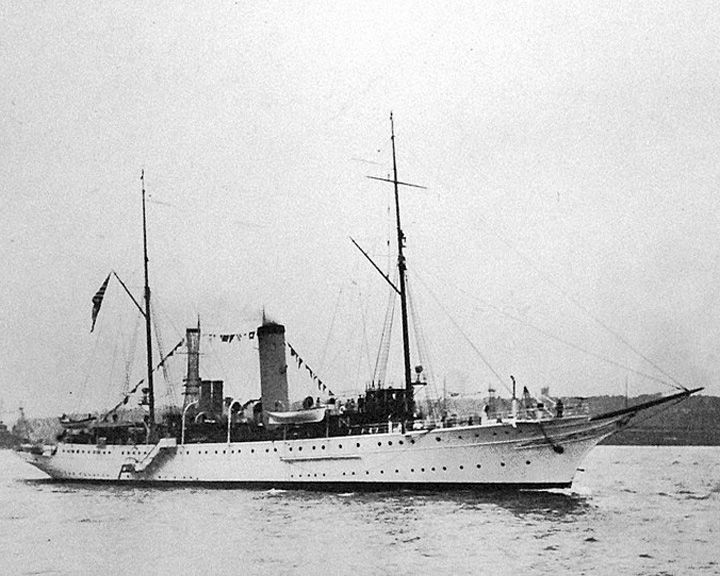 Mayflower, USS (PY-1) — American yacht She served as a private yacht, merchant ship, presidential yacht, and warship in 3 wars. She had many owners, as well serving as a presidential yacht 1905-1929. She was finally purchased by Israel in 1950 and renamed INS Ma'oz. LAUNCHED: 1896 → FATE: Broken up in 1955. |
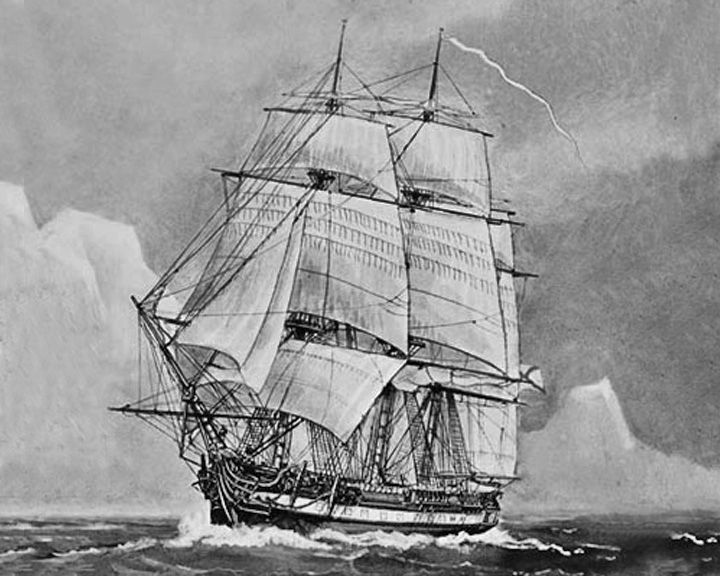 (Another (Another Mirny — Russian sloop-of-war First to discover the continent of Antarctica and circumnavigated it twice. A medal was issued by the Russian Admiralty to commemorate the expedition as seen in "Another IMAGE". LAUNCHED: 1819 → FATE: Unknown. |
 Missouri, USS — American battleship The site of the surrender of Japan which ended World War II. She was the last battleship built by the United States. LAUNCHED: 1944, January 18 → FATE: On exhibit near the USS Arizona Memorial at Pearl Harbor in Honolulu, Hawaii. |
 Monitor, USS — American ironclad warship With CSS Virginia, first naval battle between two ironclad warships at the Battle of Hampton Roads. She had a rotating gun turret. LAUNCHED: 1862, January 18 → FATE: Sank on December 31, 1862. |
 Napoléon, (Le) — French battleship, ship of the line First true steam and screw battleship in the world. She was the lead ship of a class of 9 battleships, all considered as very successful and built over a period of 10 years. LAUNCHED: 1850, May 18 → FATE: Sunk November 6, 1876. |
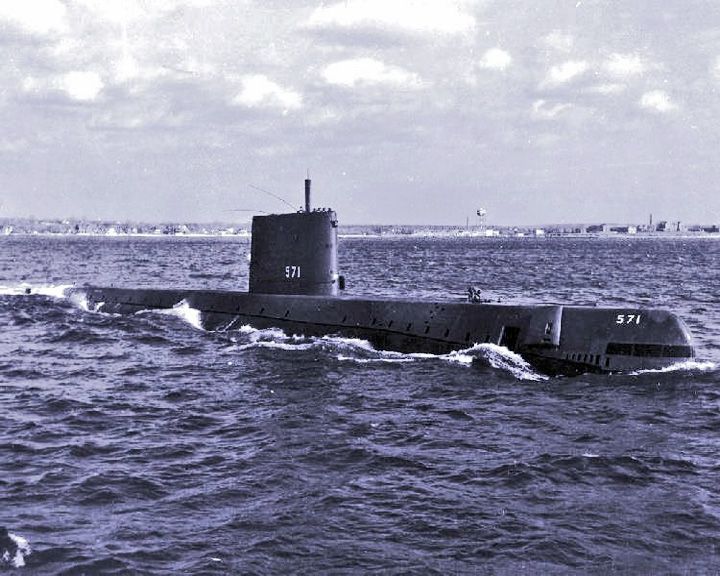 Nautilus, USS — American nuclear submarine World's first nuclear-powered submarine. She was the first vessel to cross under the North Pole. Also the namesake of another U.S. submarine that served in World War II. LAUNCHED: 1954, January 18 → FATE: On exhibit at the Naval Submarine Base New London in Groton, Connecticut. |
|
Page 12
|
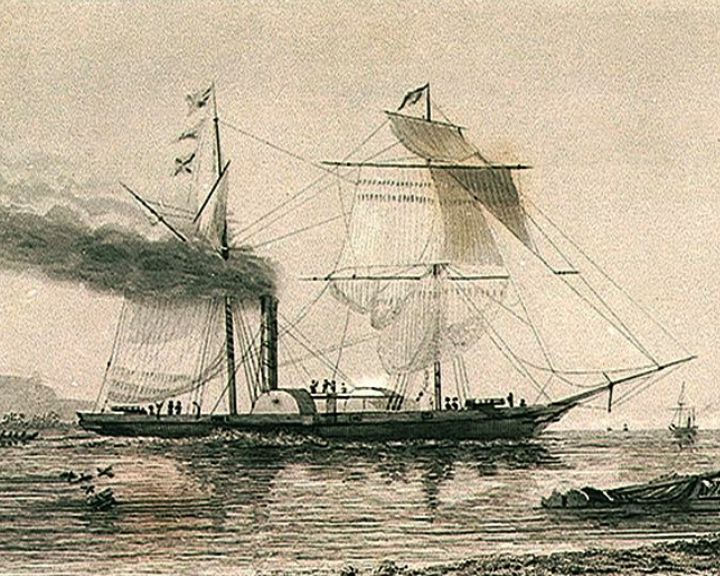 Nemesis — British steam and sail powered warship The first British ocean-going iron warship; also the first iron ship to sail around the Cape of Good Hope. She was greatly effective in the First Opium War. The Chinese referred to her as the "devil ship". LAUNCHED: 1839 → FATE: Ended up in Calcutta, 1855. |
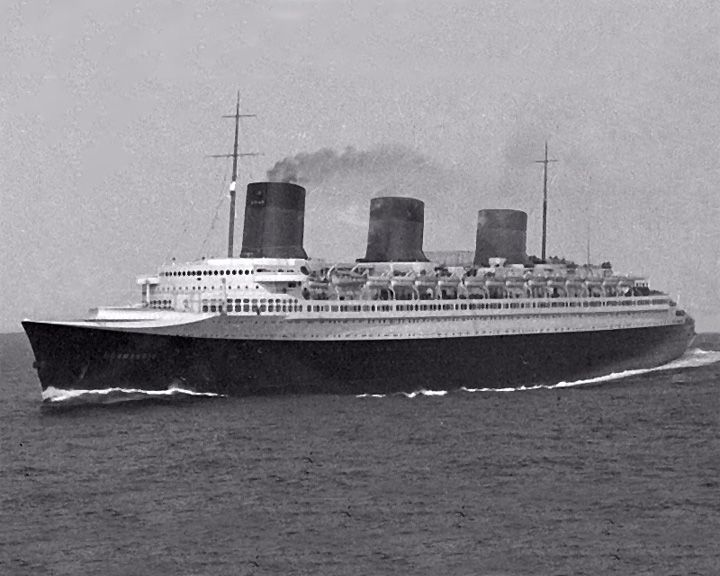 (Another (Another Normandie, SS — French ocean liner Largest, fastest and most powerful passenger ship ever built. Considered one of the greatest ocean liners in history, her Art Deco motif was so splendid she was known as the "Ship of Light" just as Paris was the "City of Light". LAUNCHED: 1935, October 29 → FATE: Caught fire and capsized in February 1942; scrapped October, 1946. |
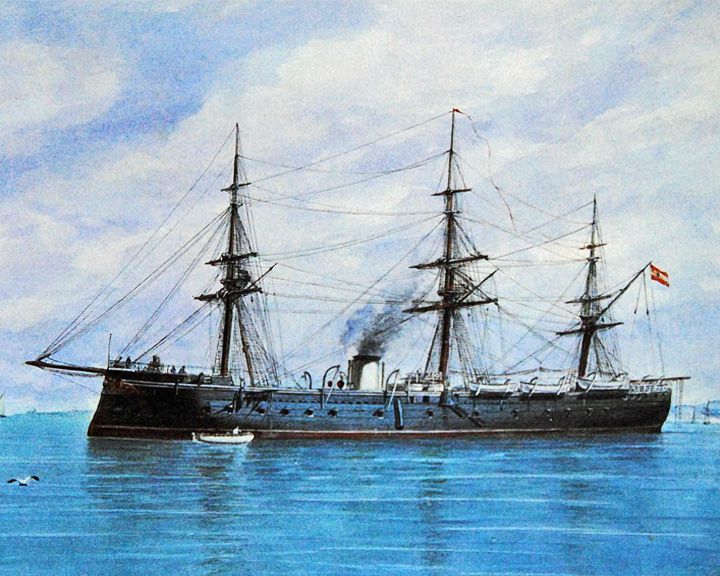 Numancia — Spanish broadside ironclad First ironclad to circumnavigate the Earth. She was built as an armored frigate in France and sold to the Spanish in 1865. LAUNCHED: 1863, November 18 → FATE: Sank while under tow December 17, 1916. |
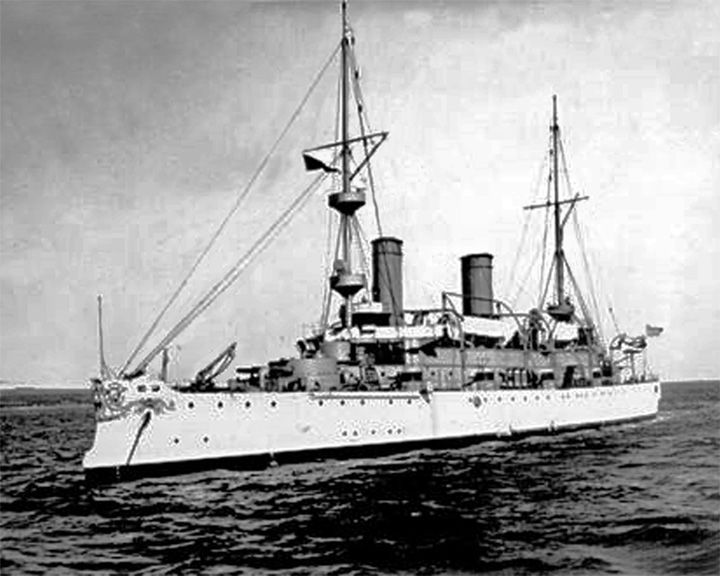 Olympia, USS — American protected cruiser Famous as the flagship of Commodore George Dewey at the Battle of Manila. She is the sole floating survivor of the US Navy's Spanish American War fleet. LAUNCHED: 1892, November 18 → FATE: Restored as a museum ship at the Independence Seaport Museum in Philadelphia. |
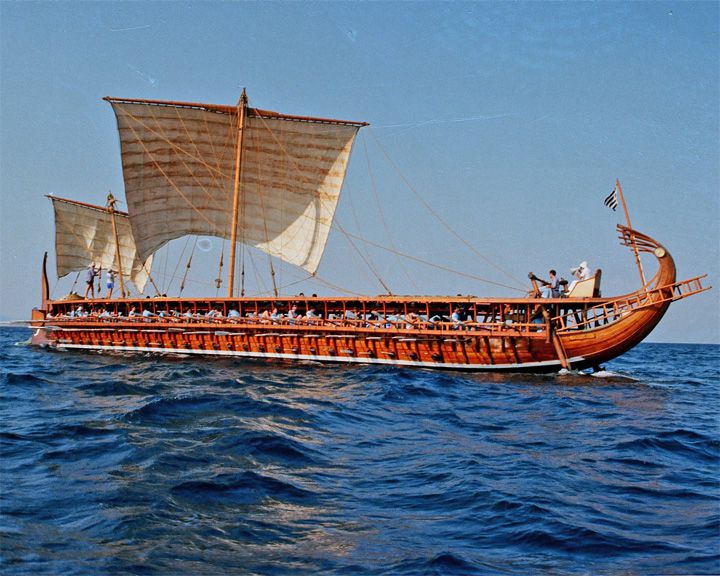 Olympias — Greek trireme The only commissioned replica trireme in the world. She achieved a speed of 9 knots (17 km/h) and was able to turn 180 degree within one minute. LAUNCHED: 1987, August → FATE: On exhibit in a dry dock at the Naval Tradition Park in Palaio Faliro, Athens, Greece. |
 Orion, RMS — British ocean liner First to offer modern passenger comforts in ocean travel including air conditioning.. She was launched at England from Brisbane, Australia by wireless remote by the Duke of Gloucester. She served as a troop ship in World War II, then converted to a passenger liner in 1946. LAUNCHED: 1934, December 18 → FATE: Broken for scrap at Antwerp, Belgium in 1963. |
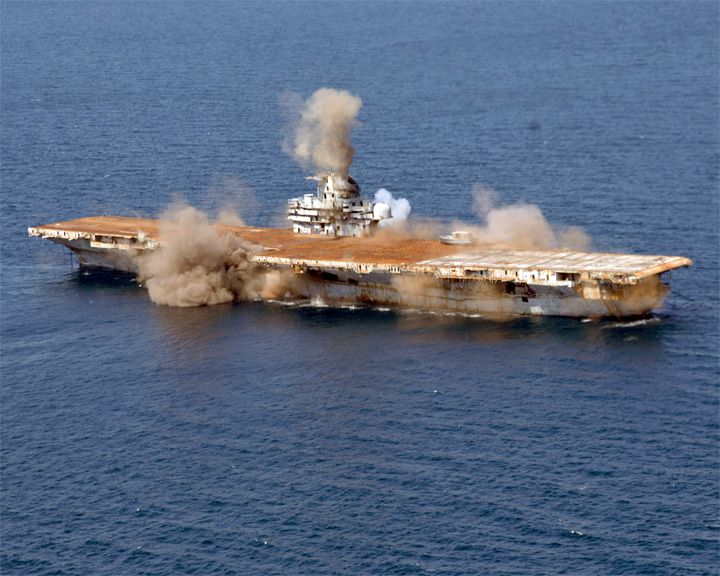 (Another (Another Oriskany, USS — American aircraft carrier, Essex class The world's largest, and the U.S.'s first, artificial reef. She had multiple reconfigurations and updates. In 1966, a flare accidentally ignited on the hangar bay causing a catastrophic fire killing 44 crewmen. LAUNCHED: 1945, October 18 → FATE: Sunk as an artifical reef May 17, 2006. |
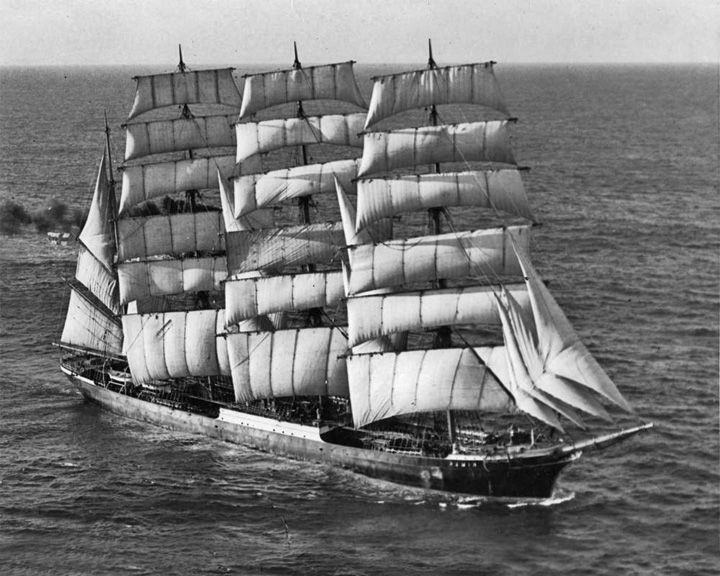 Pamir — German barque, four-masted steel-hulled windjammer Last commercial sailing ship to round Cape Horn in 1949. Over her life at various times, she flew under the flags of Germany, Italy, New Zealand, and Finland. LAUNCHED: 1905, July → FATE: Caught in Hurricane Carrie and sank off the Azores, September 21, 1957. |
|
Page 13
|
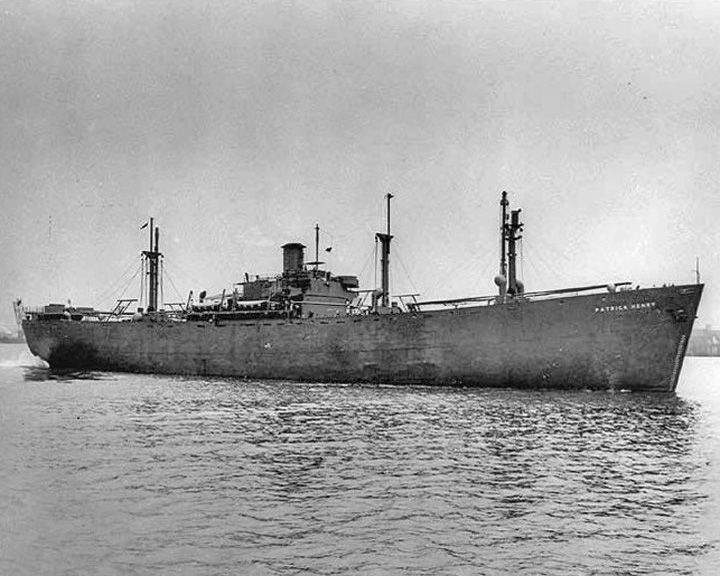 Patrick Henry, SS — American liberty ship; cargo ship First of 2751 liberty ships built during World War II. Liberty ships were built in a mass production method, each typically in 70 days or less. SS Patrick Henry made 12 voyages across the Atlantic Ocean. LAUNCHED: 1941, September 18 → FATE: Went aground off the coast of Florida July of 1946, scrapped in 1960. |
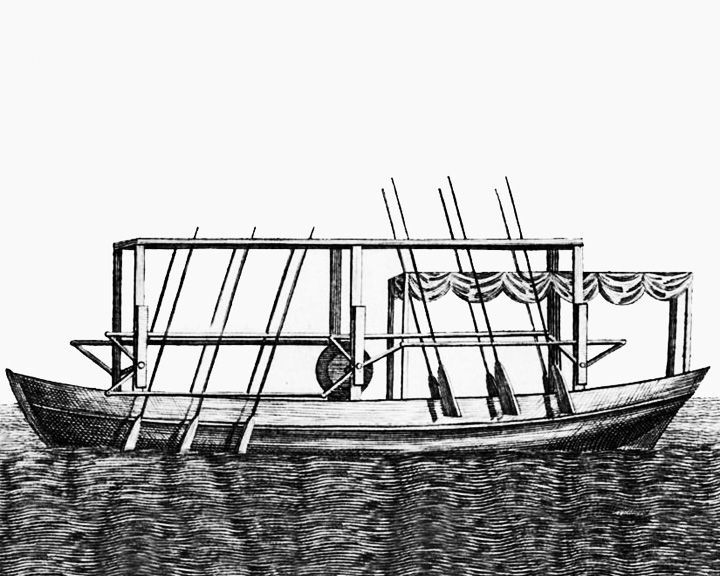 Perserverance — American steam boat First steam boat that operated using a series of vertical paddles. Invented by John Fitch, an improved model carried passengers on round-trips between Philadelphia and Burlington, New Jersey, summer of 1790. LAUNCHED: 1787 → FATE: Unknown. |
 Pilot — Russian icebreaker World's first steam-powered and metal-ship icebreaker. Originally been built as a steam-powered propeller tug. LAUNCHED: 1864 → FATE: Unknown. |
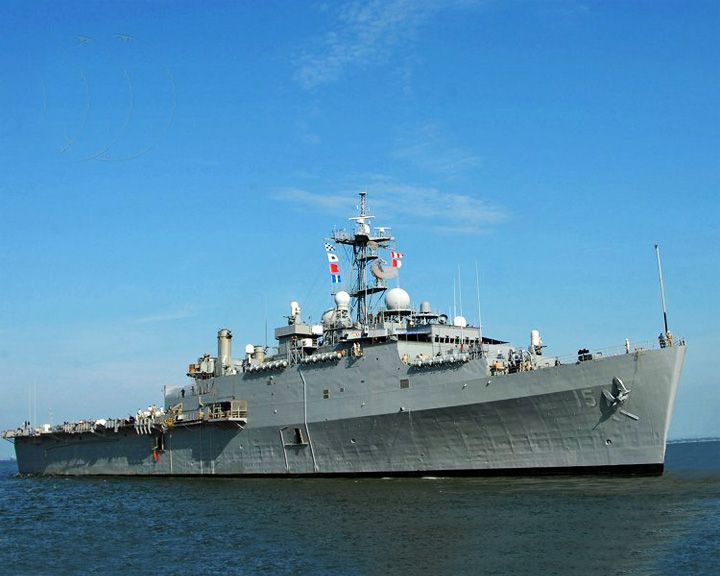 Ponce, USS — American amphibious assault ship First "Afloat Forward Staging Base" (AFSB) ship. She was refitted in 2012 to serve as floating port for helicopters and patrol craft. LAUNCHED: 1970, May 18 → FATE: Still in service. |
 President, SS — British paddle steamship, with sails; ocean-going First steamship lost at sea on a transatlantic run, taking with her all 136 on board. Constructed with a third deck on top of the hull and designed with luxurious staterooms, she was top heavy and rolled excessively. LAUNCHED: 1840, August → FATE: Lost during a gale off Nantucket Shoals March of 1841. |
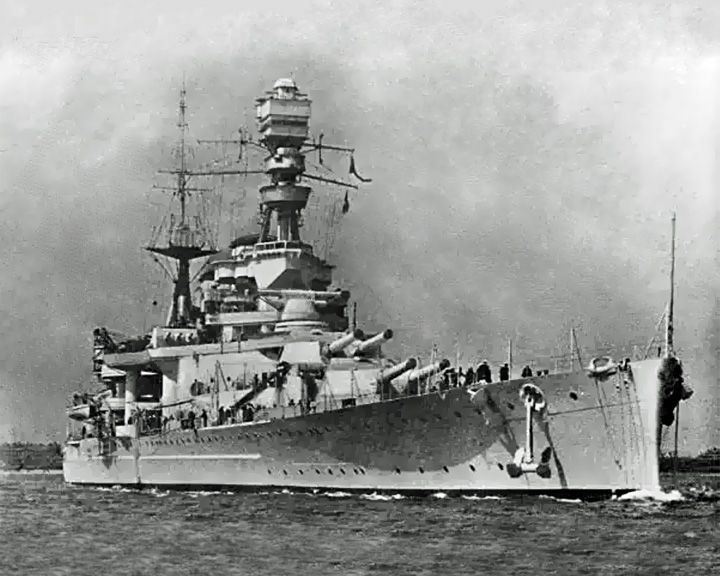 Prince of Wales, HMS — British battleship She and Repulse were the first capital ships to be sunk solely by naval air power on the open sea. She was involved in several key actions of the World War II, including the Battle of the Denmark Strait against the German battleship Bismarck. LAUNCHED: 1939, May 18 → FATE: Sunk on December 10, 1941 by Japanese air attack off Kuantan, South China Sea. |
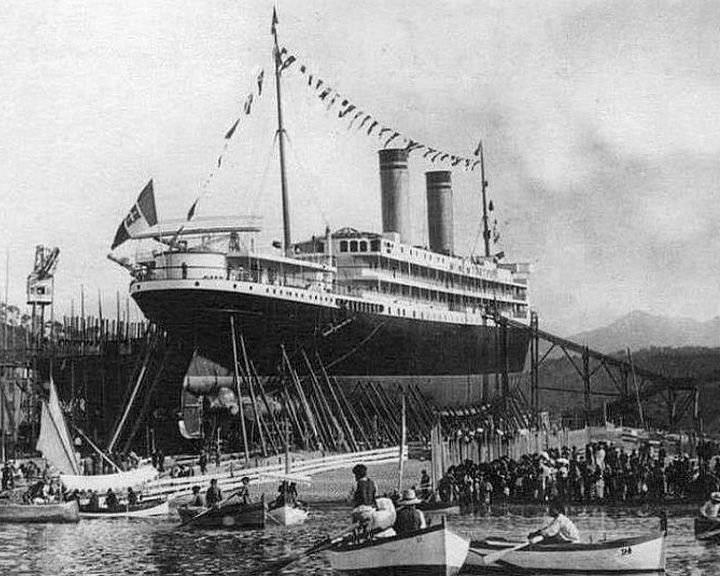 (Another (Another Principessa Jolanda, SS — Italian ocean liner She was to be among the first transatlantic vessels with Marconi telegraphy, electric lighting and telephones. She never sailed, but capsized during initial launch and sank. LAUNCHED: 1907, September 18 → FATE: Sank September 22, 1907. |
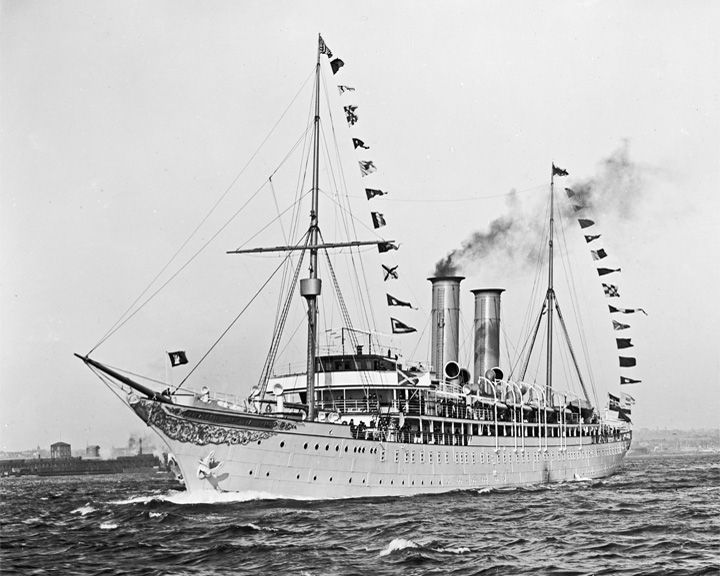 Prinzessin Victoria Luise — German passenger ship First purpose-built cruise ship. Not only did she look more like a private yacht, she had 120 first class cabins, a library, gymnasium, and darkroom. LAUNCHED: 1900, June 18 → FATE: Declared a loss December 19, 1906 after running onto rocks at Kingston. |
|
Page 14
|
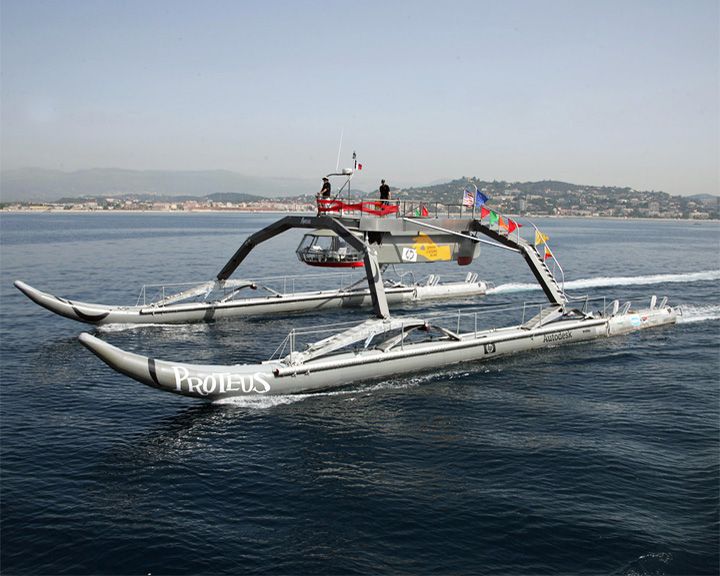 |
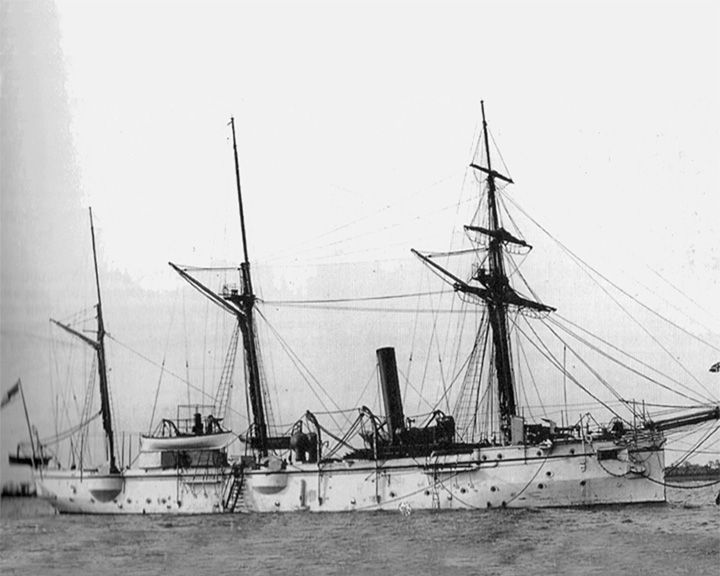 Rattler, HMS — British sloop made of wood with metal frame First warship to adopt a screw propellor. In March 1845, she beat HMS Alecto in a series of races, followed by a contest in which she towed Alecto backwards at a speed of 2 knots (3.7 km/h). LAUNCHED: 1843 → FATE: Broken up 1856. |
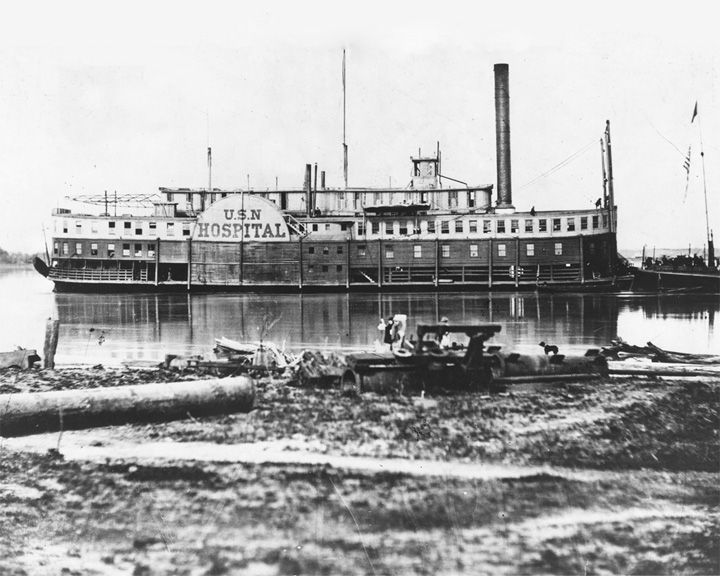 Red Rover, USS — American Confederate paddle steamboat, side-wheeler First ship fitted and staffed as a hospital ship. During the American Civil War, she was a Confederate barracks ship until the Union captured and refit her in March of 1862. LAUNCHED: 1859 → FATE: Decommissioned and sold at public auction November 29, 1865. |
 Resolution, HMS — British Collier The first ship to cross the Antarctic Circle reaching beyond latitude 71 degrees south. She was the ship on which Captain James Cook made his second and third voyages of exploration in the Pacific. LAUNCHED: 1770 → FATE: Taken by the French June 10, 1782, renamed La Liberté and ended up rotting in Narragansett Bay not far from Cook's other ship, Endeavour. |
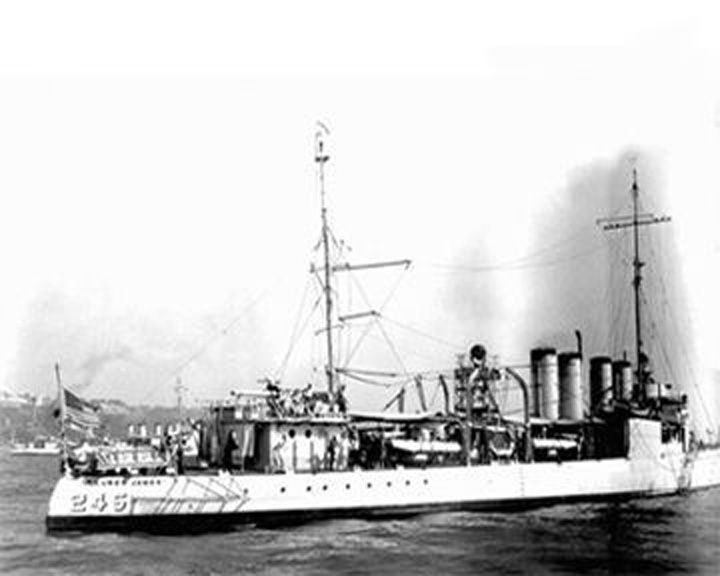 Reuben James, USS — American destroyer First US ship to be sunk in World War II. She was torpedoed while escorting an Atlantic convoy of supply ships to Britain; 159 crew were lost, 44 survived. LAUNCHED: 1919, October → FATE: Sunk October 31, 1941. |
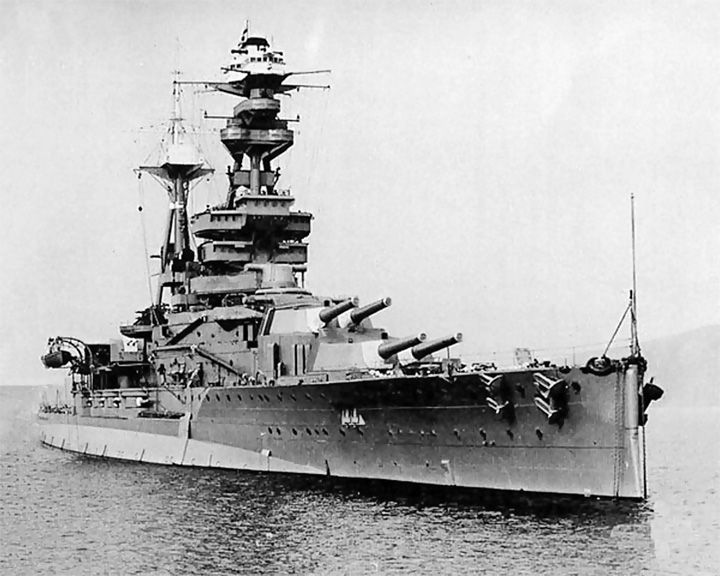 (Another (Another
Royal Oak, HMS — British Battleship, Revenge-class The first of five Royal Navy battleships and battlecruisers sunk in the World War II. When she was torpedoed, 835 of her 1,234 crew were killed. The brass letters of her name were removed from the sunken ship and are now displayed in the Scapa Flow visitor center. LAUNCHED: 1914, November 17 → FATE: Was sunk in Scapa Flow in October 1939 by a German U-boat, |
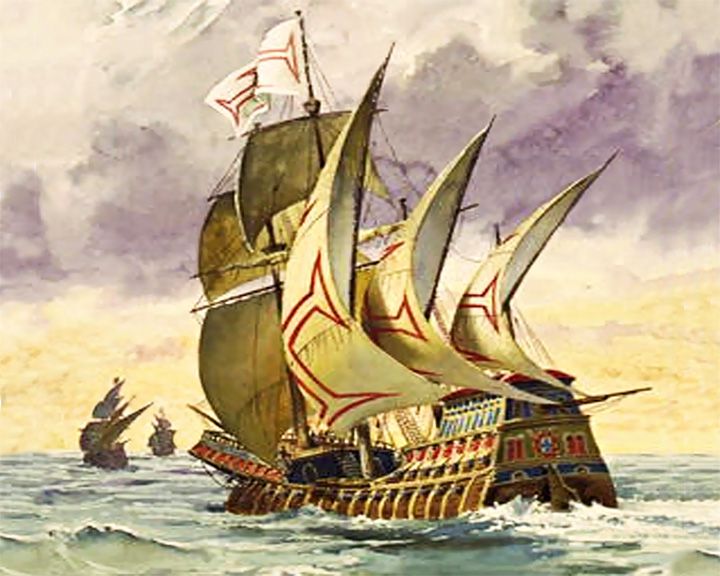 São Gabriel — Portugese caravel Flagship of Vasco da Gama's armada which carried the first Europeans to the coast of India. She, along with ships São Rafael, Bérrio, and São Miguel, made the round trip in two years. LAUNCHED: 1497 → FATE: Unknown. |
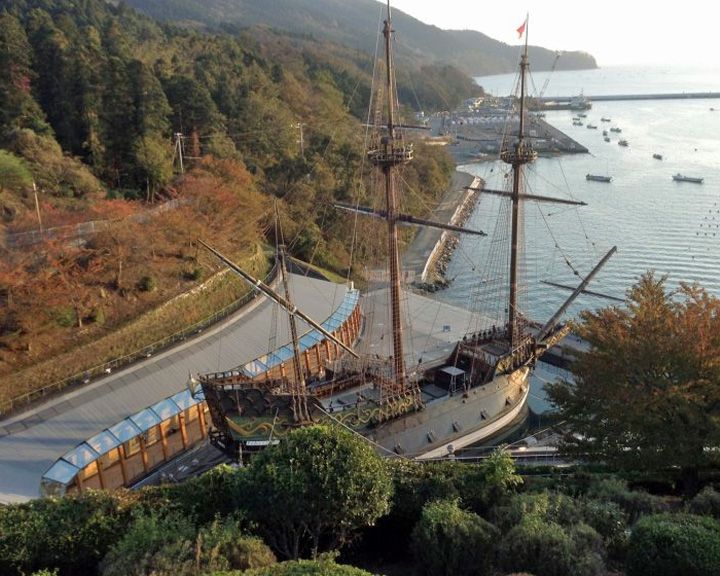 San Juan Bautista — Japanese galleon One of Japan's first Japanese-built Western-style sailing ships. She crossed the Pacific in 1614 transporting a Japanese diplomatic mission to the Vatican. By 1619, then owned by Spain, she was a slave ship. A full sized replica of the San Juan Bautista is the centerpiece of museum in Ishinomaki, Japan. LAUNCHED: 1613, September → FATE: Unknown |
|
Page 15
|
 Savannah, SS — American paddle steamship, side-wheeler with sails First steamship to cross the Atlantic Ocean. After ocean crossing, her steam plant was removed and she continued sailing up and down the east coast. LAUNCHED: 1819, March → FATE: Ran aground off Long Island, NY in 1823. |
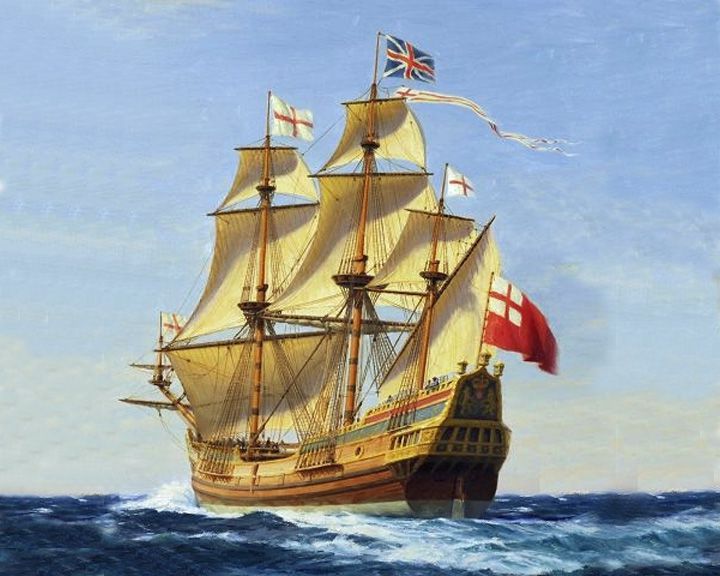 Sea Venture — English merchant ship; purpose-built First dedicated emigration ship as part of the Third Supply mission to the Jamestown Colony. During the storm, massive leaks developed because of faulty construction. All 150 people aboard and one dog made it to shore safely. LAUNCHED: 1609 → FATE: Damaged in a hurricane and scuttled at Discovery Bay, June 1609. |
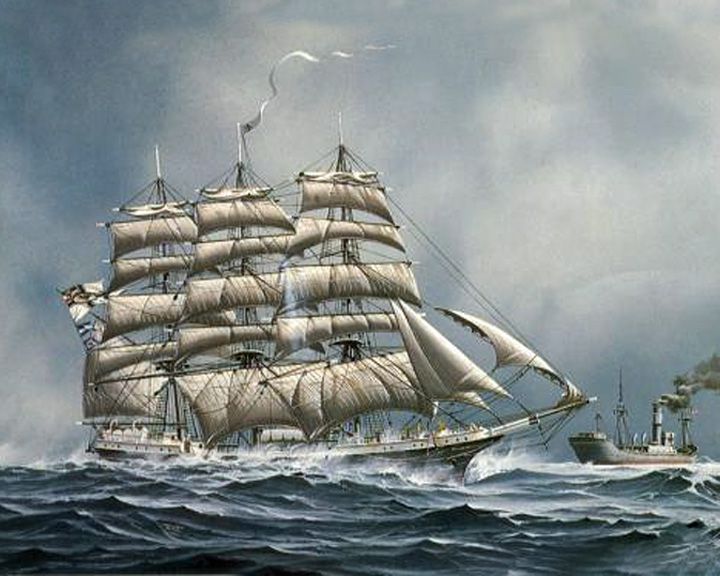 Seeadler, SMS — Scottish windjammer, three-masted; American owned One of the last sailing ships used in a war; as a German merchant raider disguised as a Norwegian wood carrier. she was originally named Pass of Balmaha before capture by a German submarine. LAUNCHED: 1888 → FATE: Wrecked on a reef at the island of Pacific, August 2, 1917. |
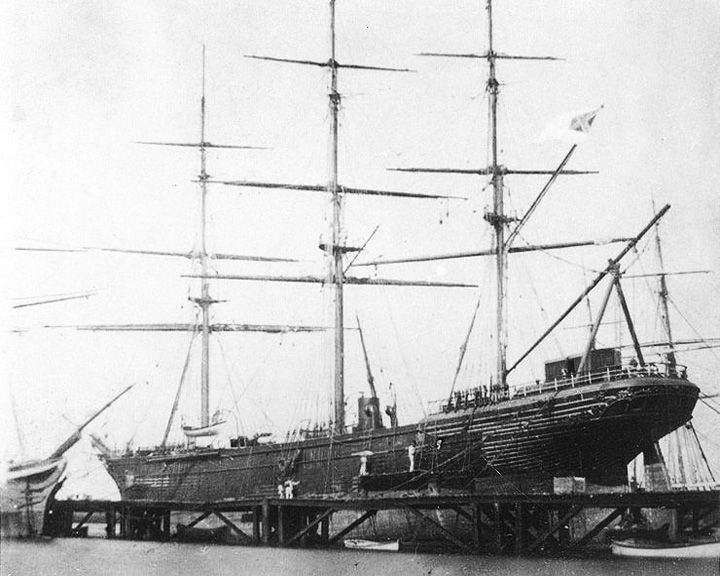 Shenandoah, CSS — American Confederate full-rigged ship, iron-clad During the US Civil War, she captured and/or sank 38 Union merchant vessels. She fired the last shot of the Civil War off the Aleutian Islands, then was surrendered to the British. She was sold to Majid bin Said, the first Sultan of Zanzibar who renamed her El Majidi after himself. LAUNCHED: 1863, August 18 → FATE: As El Majidi, beached during hurricane near Zanzibar in 1872. |
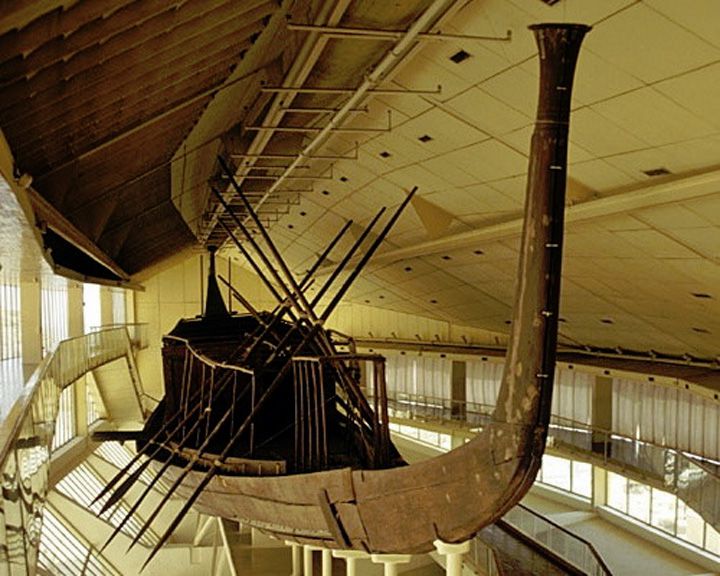 Solar Bark — Egyptian barge, or bark; Ancient funeral The world's oldest intact ship; built for Khufu, King Cheops. She was discovered in 1954 sealed into a pit at the foot of the Great Pyramid of Giza. LAUNCHED: 2500, BC, circa → FATE: On display in a museum at the Giza pyramid complex since 1982. |
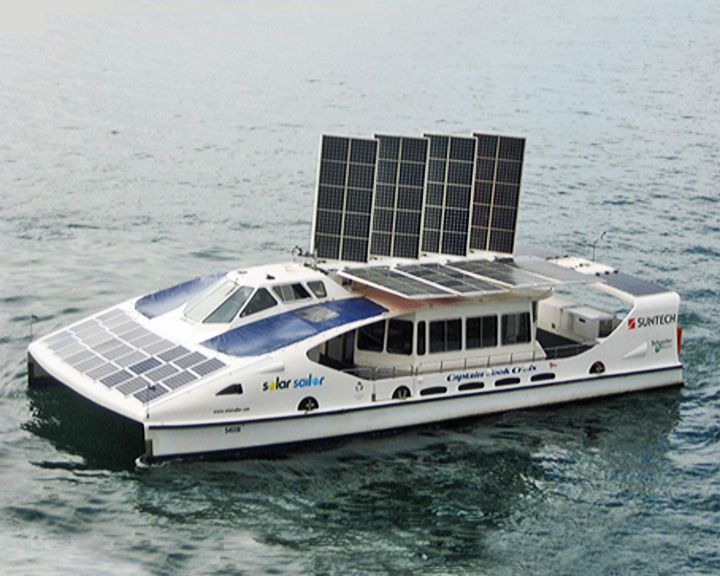 Solar Sailor — Australian passenger ferry First vessel to be efficiently powered by both wind and sun. She was a unique hybrid ferry propelled by solar or wind energy, battery, or diesel. LAUNCHED: 2000 → FATE: Currently operating in Sydney Harbour. |
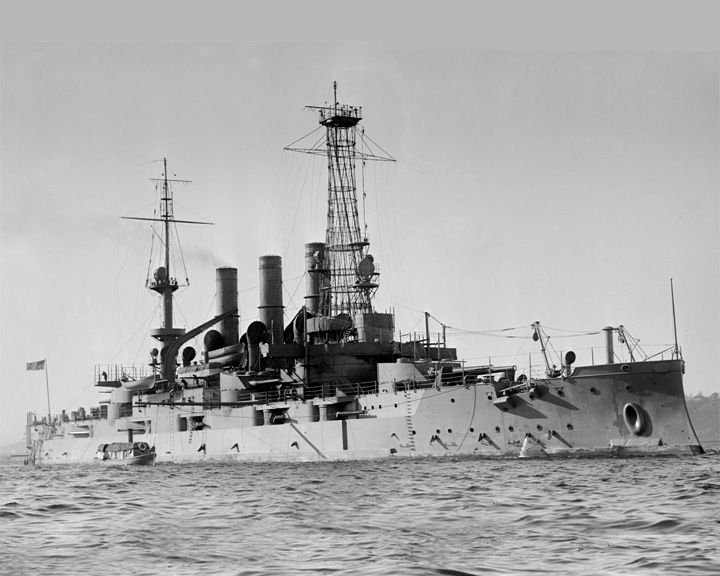 South Carolina, USS — American dreadnought, battleship The first American dreadnought and the first of any nation to have its main guns in a superfire arrangement. She was part of America's Great White Fleet that circumnavigated, December of 1907 to February of 1909. LAUNCHED: 1908, July 18 → FATE: Sold for scrap on April of 1924. |
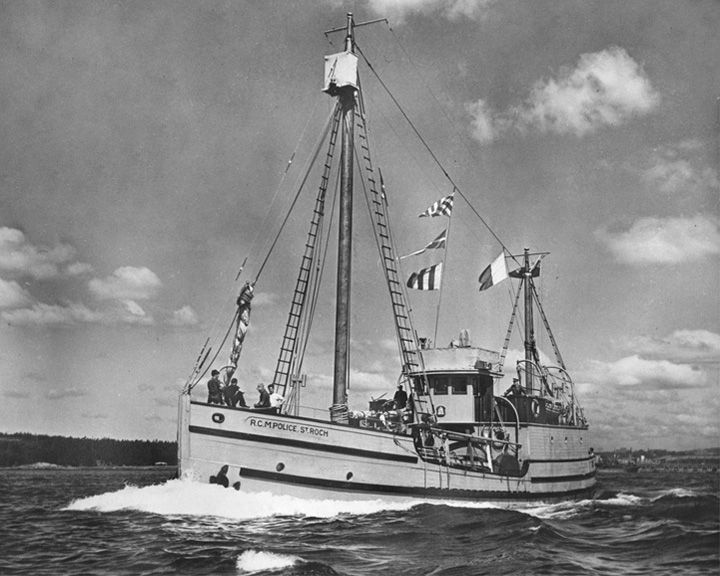 St. Roch — Canadian schooner The first ship to completely circumnavigate North America, and first to complete passage through the Northwest Passage west to east. She was also the first vessel to pass through the more northerly route of the Northwest Passage, and was also the first to navigate the passage in a single season. LAUNCHED: 1928, May 18 → FATE: On exhibit at the Vancouver Maritime Museum. |
|
Page 16
|
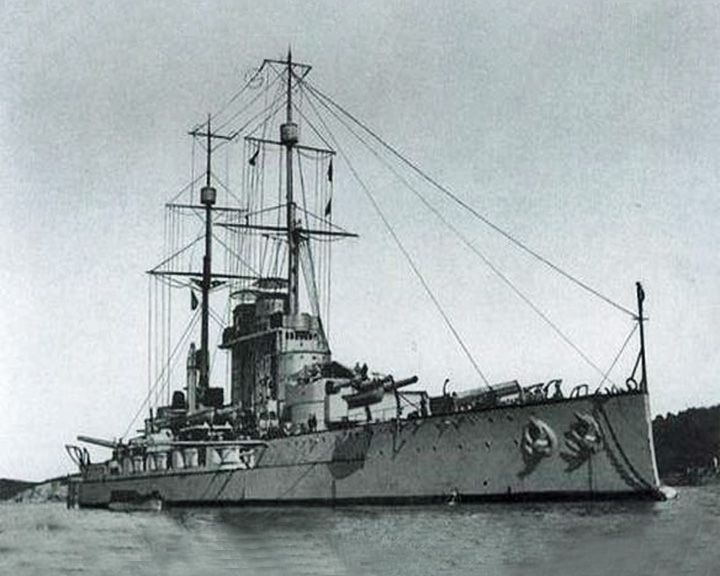 (Another (Another Szent István, SMS — Hungarian dreadnought The only battleship whose sinking was filmed during World War I. Having spent most of the war at anchor or out on gunnery training, she was sunk in her first and only mission; 89 sailors died. LAUNCHED: 1914, January 18 → FATE: Torpedoed off Premuda Island June 10, 1918. |
 (Another (Another Texas, USS — American New York class battleship The only remaining World War I era dreadnought battleship. She is noteworthy for being one of only seven remaining ships and the only remaining capital ship to have served in both World Wars. LAUNCHED: 1912, May 18 → FATE: Museum ship at San Jacinto Battleground State Historic Site. |
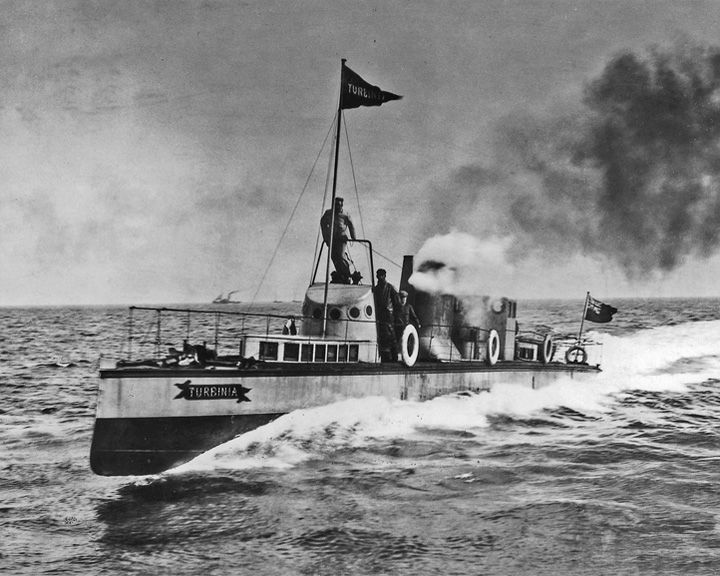 Turbinia — British steamship First steam turbine-powered steamship and the fastest ship in the world at that time at over 34 knots. She showed up unannounced at the Fleet Review for Queen Victoria's Diamond Jubilee at Spithead in 1897, racing up and down the ranks of other ships. LAUNCHED: 1894, August 18 → FATE: On display at the Discovery Museum at Newcastle upon Tyne, England. |
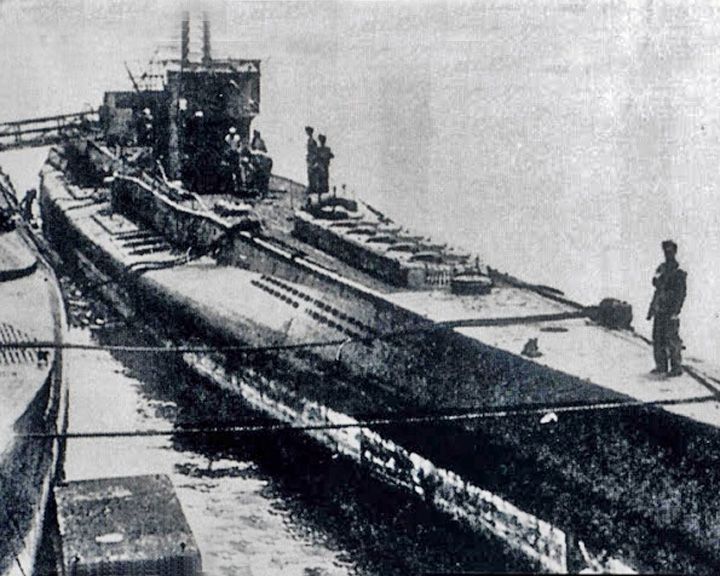 U-234 — German submarine Hitler's last submarine; ironically, there is an isotope of uranium designated U-234. While attempting to deliver uranium to Japan near the end of World War II, she surrendered to the United States on May 14, 1945. LAUNCHED: 1943, December → FATE: Sunk by torpedo November 20, 1947. |
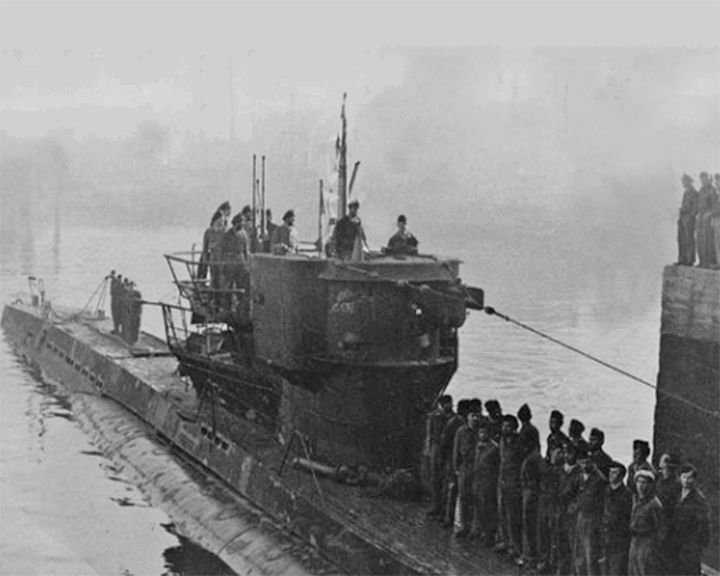 U-480 — German experimental Kriegsmarine Type VIIC submarine The first stealth submarine; she was covered with a special rubber coating making it difficult to detect with SONAR. She sank two warships and two merchantmen ships and was never detected by the British until it was discovered by divers in 1998 south of Isle of Wight. LAUNCHED: 1943, August 14 → FATE: Sunk in February 1945 in an English Channel minefield with the loss of its crew. |
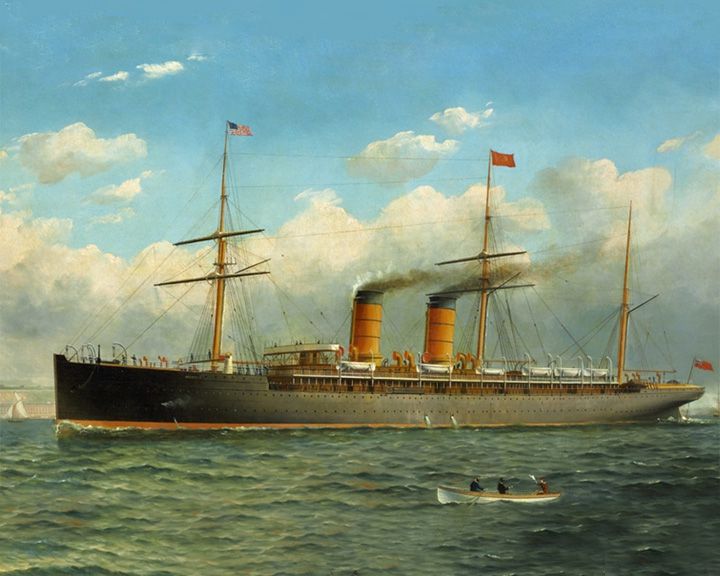 Umbria, RMS — British ocean liner With her sister ship, Etruria, the last two transatlantic ocean liners fitted with auxiliary sails. In May of 1903, the Mafia tried to blow her up but failed. LAUNCHED: 1884, June 18 → FATE: Scrapped in 1910. |
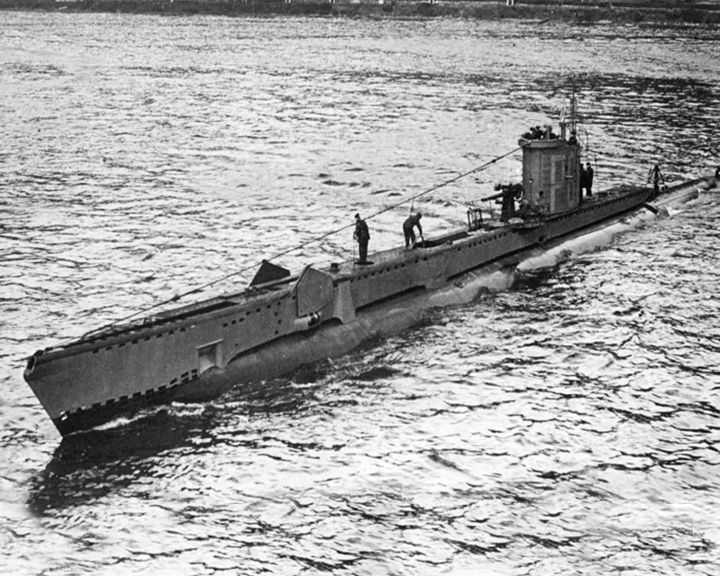 Venturer, HMS — British V-class submarine First time in naval warfare that one submarine stalked and sank another while both were submerged. Based on Enigma decrypts, she sought out and destroyed the German submarine U-864 in the Fedje area, February 9, 1945. LAUNCHED: 1943, May 4 → FATE: She was sold to Norway and renamed HNoMS Utstein. She was scrapped and broken up in 1964. |
 Victoria — Spanish carrack or nao First ship to circumnavigate the world — August, 1519 to September of 1522; a total of 42,000 miles. Captain Ferdinand Magellan was killed in the Phillipines; another four ships were lost along the way. LAUNCHED: 1518, about → FATE: 1522 or soon after. |
|
Page 17
|
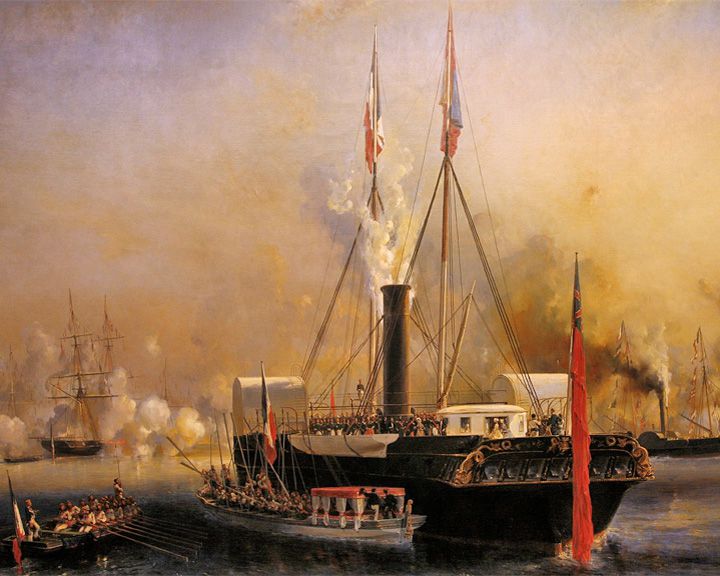 Victoria and Albert, HMY — British royal yacht; twin-paddle steamer First steam powered royal yacht built in Britain. The Queen and Prince Albert loved cruising around the coast of England. The yacht was renamed Osborne after the launch of HMY Victoria and Albert II January 16, 1855. LAUNCHED: 1843, April 25 → FATE: Scrapped, 1868. |
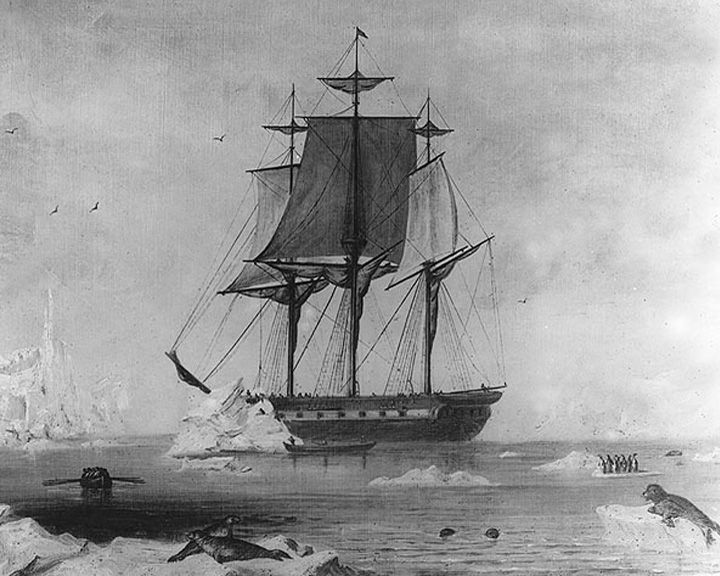 Vincennes, USS — American sloop of war First U.S. ship to circumnavigate the globe. She was the flagship for the U.S. Exploring Expedition of 1838. LAUNCHED: 1826 → FATE: Sold in October of 1867 at Boston, Massachusetts; fate unknown. |
 Virginia, CSS — Americant Confederat ironclad warship With USS Monitor, first naval battle between ironclad warships at the Battle of Hampton Roads. She was converted to an ironclad from a steam frigate. LAUNCHED: 1862, February → FATE: Destroyed by crew May 11, 1862. |
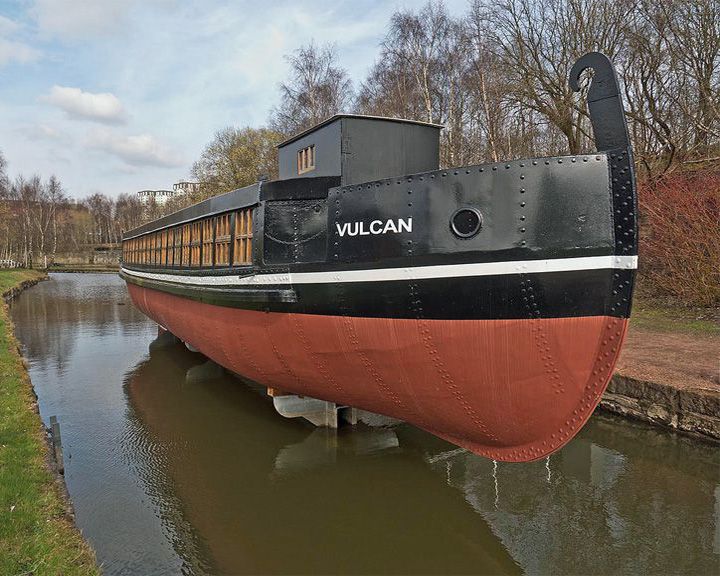 Vulcan — Scottish barge The original barge was the first all iron-hulled vessel to be built; the replica was the last Scottish vessel built using traditional riveting techniques. The iron canal boat named Trial, built by John Wilkinson in 1787, was not all iron. In 1988, a replica of the Vulcan was constructed. LAUNCHED: 1819, original ship; replica, 1985 → FATE: The original was sold for scrap 1873; the replica now sits decaying at Coatbridge, in North Lanarkshire, Scotland. |
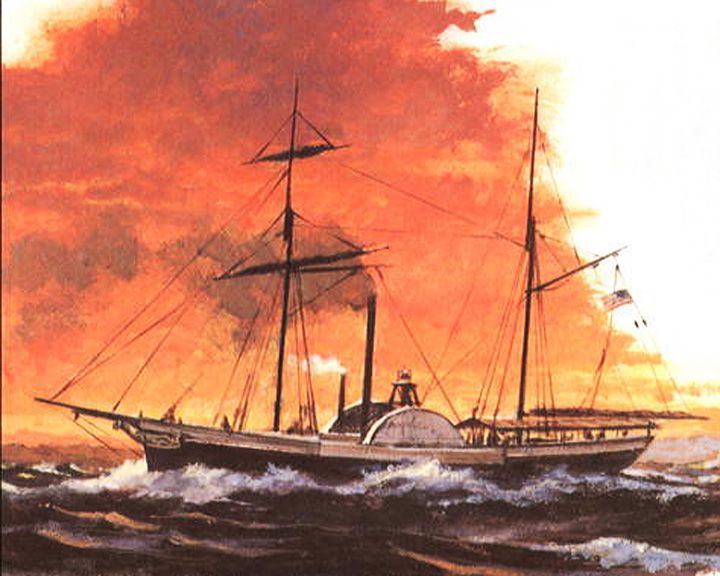 Walk-in-the-Water — American paddle steamboat, stern-wheeler with two masts First steamboat on Lake Erie and the eastern Great Lakes. Two large paddle boxes amidship housed her paddle wheels. LAUNCHED: 1818, August 23, first voyage → FATE: Grounded on the beach south of Buffalo, NY, October 31, 1821. |
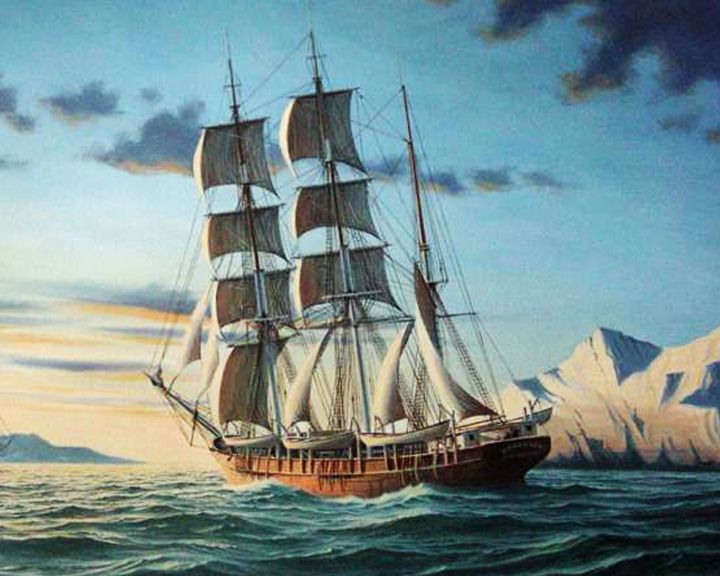 Wanderer — American whaling ship Last American whaling ship. The mast of the Wanderer stands as a flagpole in Boston Navy Yard, a few feet from where it was built. LAUNCHED: 1878 → FATE: Lost in a storm near Cuttyhunk Island, Massachusetts, on August 26, 1924. |
 Warrior, HMS — British warship First British iron-hulled, armour-plated warship. She was the largest, fastest, most heavily armed and armored warship up to that time. LAUNCHED: 1860, December 18 → FATE: Currently berthed in Portsmouth, England as a museum. |
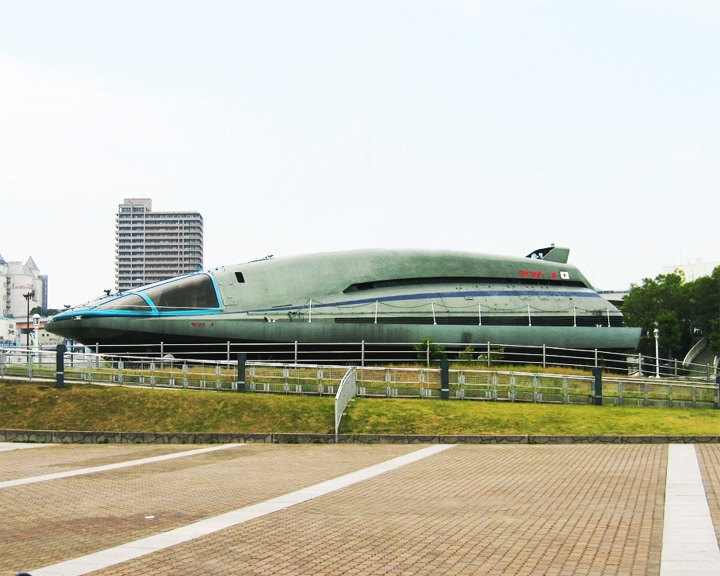 Yamato 1 — Japanese experimental ship She used magnetohydrodynamic drive s (MHDDs) driven by liquid helium-cooled superconductors . The ship, which had no moving parts, was successfully operated in Kobe harbor in June 1992. LAUNCHED: 1991 → FATE: She was on display at the Kobe Maritime Museum but was demolished in 2016. |
|
Page 18
|
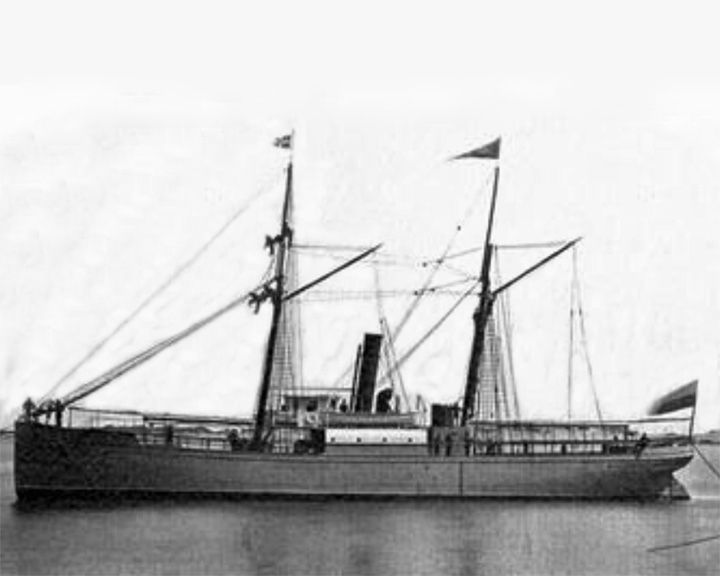 Zoroaster — Swedish oil tanker The first successful oil tanker, carrying the kerosene cargo in two iron tanks in her hull instead of many separate wooden casks. She was built by Ludwig Nobel, brother of Alfred who created The Nobel Prize. LAUNCHED: 1878 → FATE: Unknown. |
The number of All Countries Ships; First, Last, Oldest listed is 136 The contents of this page are available under the Creative Commons Attribution-Share Alike 3.0 Unported license and the GNU Free Documentation License (GFDL). |
|
|
First Ship on each page
| |
| Page | Ship Name (Country and Type) |
| 1. | Albert M. Boe (American liberty ship) |
| 2. | Argus, HMS (British aircraft carrier) |
| 3. | Cairo, USS (American ironclad gunboat) |
| 4. | Cusk, USS (American submarine) |
| 5. | Dreadnought, HMS (British dreadnought battleship) |
| 6. | Faith, SS (American Concrete) |
| 7. | Great Western, SS (British paddle steamboat) |
| 8. | Huáscar (Peruvian iron-clad) |
| 9. | Iowa, USS (American fast battleship) |
| 10. | La Gloire (French battleship) |
| 11. | Maryland Dove (American merchant vessel) |
| 12. | Nemesis (British steam and sail powered warship) |
| 13. | Patrick Henry, SS (American liberty ship) |
| 14. | Proteus (American catamaran) |
| 15. | Savannah, SS (American paddle steamship) |
| 16. | Szent István, SMS (Hungarian dreadnought) |
| 17. | Victoria and Albert, HMY (British royal yacht) |
All Countries | |
| 1. | Albert M. Boe American liberty ship |
| 2. | Alligator American submarine |
| 3. | Alvin, DSV American research vessel |
| 4. | Ancon, SS American steamship |
| 5. | Andrea Doria, SS Italian ocean liner |
| 6. | Archimedes, SS British steamship |
| 7. | Argus, HMS British aircraft carrier |
| 8. | Arthur Foss American tugboat |
| 9. | Australia II Australian racing yacht |
| 10. | Belfast, HMS British town-class cruiser |
| 11. | Birkenhead, HMS British frigate |
| 12. | Birmingham, USS American scout cruiser |
| 13. | Blyshawica, ORP Polish destroyer |
| 14. | Boudeuse French frigate |
| 15. | Cairo, USS American ironclad gunboat |
| 16. | Cassin Young, USS American destroyer |
| 17. | Challenger, HMS British corvette |
| 18. | Charles W. Morgan American whaling ship |
| 19. | Charlotte Dundas Scottish steamboat |
| 20. | City of Adelaide English clipper ship |
| 21. | Clermont American steamboat |
| 22. | Columbia Rediviva American full-rigged |
| 23. | Cusk, USS American submarine |
| 24. | Daigo Fukuryu Maru Japanese fishing boat |
| 25. | Daimlier German motorboat |
| 26. | Darling, HMS British torpedo boat destroyer |
| 27. | Demologos American paddle steamers |
| 28. | Deutschland, SMS German battleship |
| 29. | Deutschland, submarine German submarine |
| 30. | Devastastion, HMS British Devastation-class ironclad |
| 31. | Dreadnought, HMS British dreadnought battleship |
| 32. | Driver, HMS British paddle sloop |
| 33. | Duyfken Dutch barque |
| 34. | Emma Maersk Danish container ship |
| 35. | Empress of China American three-masted, square-rigged sailing ship |
| 36. | Endeavour, HMS British collier |
| 37. | Enterprise, USS American aircraft carrier |
| 38. | Eureka American paddle steamboat |
| 39. | Faith, SS American Concrete |
| 40. | Floating Theater American caravel |
| 41. | Frigorifique French steamship |
| 42. | Furious, HMS British battlecruiser |
| 43. | Gjøa Norwegian sloop |
| 44. | Gloire French ocean-going ironclad |
| 45. | Goeben, SMS German battlecruiser |
| 46. | Great Britain, SS British steamship |
| 47. | Great Western, SS British paddle steamboat |
| 48. | Hōshō Japanese aircraft carrier |
| 49. | HA. 19 Japanese midget submarine |
| 50. | Halibut, USS American attack submarine |
| 51. | Hannah, USS American schooner |
| 52. | Holland I, HMS British submarine |
| 53. | Holland, USS (SS-1) American submarine |
| 54. | Hood, HMS British battle cruiser |
| 55. | Huáscar Peruvian iron-clad |
| 56. | Hunley, H.L. American Confederate submarine |
| 57. | Ideal X, SS American cargo ship |
| 58. | Ile de France, SS French ocean liner |
| 59. | Indiana, USS (BB-1) American battleship |
| 60. | Indianapolis, USS American Portland-class |
| 61. | Intrepid, USS American aircraft carrier |
| 62. | Invincible, HMS British battlecruiser |
| 63. | Iowa, USS American fast battleship |
| 64. | Jiaolong Chinese research vessel |
| 65. | John W. Brown, SS American liberty ship |
| 66. | K-13 British K-class submarine |
| 67. | Kalakala American ferry |
| 68. | Kathleen and May British three masted schooner |
| 69. | Keying, Junk Chinese junk |
| 70. | L'Hydroptère French speed sailboat |
| 71. | La Gloire French battleship |
| 72. | Labrador, CCGS Canadian Wind-class icebreaker |
| 73. | Langley, USS American aircraft carrier |
| 74. | Leitha, SMS Austro-Hungarian river monitor |
| 75. | Liemba, MV German ferry |
| 76. | Lightning, HMS British torpedo boat |
| 77. | Majestic American paddle steamboat |
| 78. | Mary Rose English carrack-type |
| 79. | Maryland Dove American merchant vessel |
| 80. | Matthew English caravel |
| 81. | Mayflower, USS (PY-1) American yacht |
| 82. | Mirny Russian sloop-of-war |
| 83. | Missouri, USS American battleship |
| 84. | Monitor, USS American ironclad warship |
| 85. | Napoléon, (Le) French battleship |
| 86. | Nautilus, USS American nuclear submarine |
| 87. | Nemesis British steam and sail powered warship |
| 88. | Normandie, SS French ocean liner |
| 89. | Numancia Spanish broadside ironclad |
| 90. | Olympia, USS American protected cruiser |
| 91. | Olympias Greek trireme |
| 92. | Orion, RMS British ocean liner |
| 93. | Oriskany, USS American aircraft carrier |
| 94. | Pamir German barque |
| 95. | Patrick Henry, SS American liberty ship |
| 96. | Perserverance American steam boat |
| 97. | Pilot Russian icebreaker |
| 98. | Ponce, USS American amphibious assault ship |
| 99. | President, SS British paddle steamship |
| 100. | Prince of Wales, HMS British battleship |
| 101. | Principessa Jolanda, SS Italian ocean liner |
| 102. | Prinzessin Victoria Luise German passenger ship |
| 103. | Proteus American catamaran |
| 104. | Rattler, HMS British sloop made of wood with metal frame |
| 105. | Red Rover, USS American Confederate paddle steamboat |
| 106. | Resolution, HMS British Collier |
| 107. | Reuben James, USS American destroyer |
| 108. | Royal Oak, HMS British Battleship |
| 109. | São Gabriel Portugese caravel |
| 110. | San Juan Bautista Japanese galleon |
| 111. | Savannah, SS American paddle steamship |
| 112. | Sea Venture English merchant ship |
| 113. | Seeadler, SMS Scottish windjammer |
| 114. | Shenandoah, CSS American Confederate full-rigged ship |
| 115. | Solar Bark Egyptian barge |
| 116. | Solar Sailor Australian passenger ferry |
| 117. | South Carolina, USS American dreadnought |
| 118. | St. Roch Canadian schooner |
| 119. | Szent István, SMS Hungarian dreadnought |
| 120. | Texas, USS American New York class battleship |
| 121. | Turbinia British steamship |
| 122. | U-234 German submarine |
| 123. | U-480 German experimental Kriegsmarine Type VIIC submarine |
| 124. | Umbria, RMS British ocean liner |
| 125. | Venturer, HMS British V-class submarine |
| 126. | Victoria Spanish carrack or nao |
| 127. | Victoria and Albert, HMY British royal yacht |
| 128. | Vincennes, USS American sloop of war |
| 129. | Virginia, CSS Americant Confederat ironclad warship |
| 130. | Vulcan Scottish barge |
| 131. | Walk-in-the-Water American paddle steamboat |
| 132. | Wanderer American whaling ship |
| 133. | Warrior, HMS British warship |
| 134. | Yamato 1 Japanese experimental ship |
| 135. | Zoroaster Swedish oil tanker |
|
About the Data There are more than 400 ships in this database, but the initial list is only for famous ships names that begin with letters "A-B". For other listings, use the country and type tabs. Touching (or cursor over) a ship image produces an enlargement. Touch anywhere else (or move the cursor off the image) to close the larger image. Touching (or clicking on) any underlined name will link to a page with more information. Although submarines are usually called boats, they are grouped with ships here. Most of the information comes from Wikipedia. |
^
Other Pages in Names Galore: | |
Famous Cowboy Names Sports Team Names Other Name Lists | Name Generators Naming Fun Stories about Names |